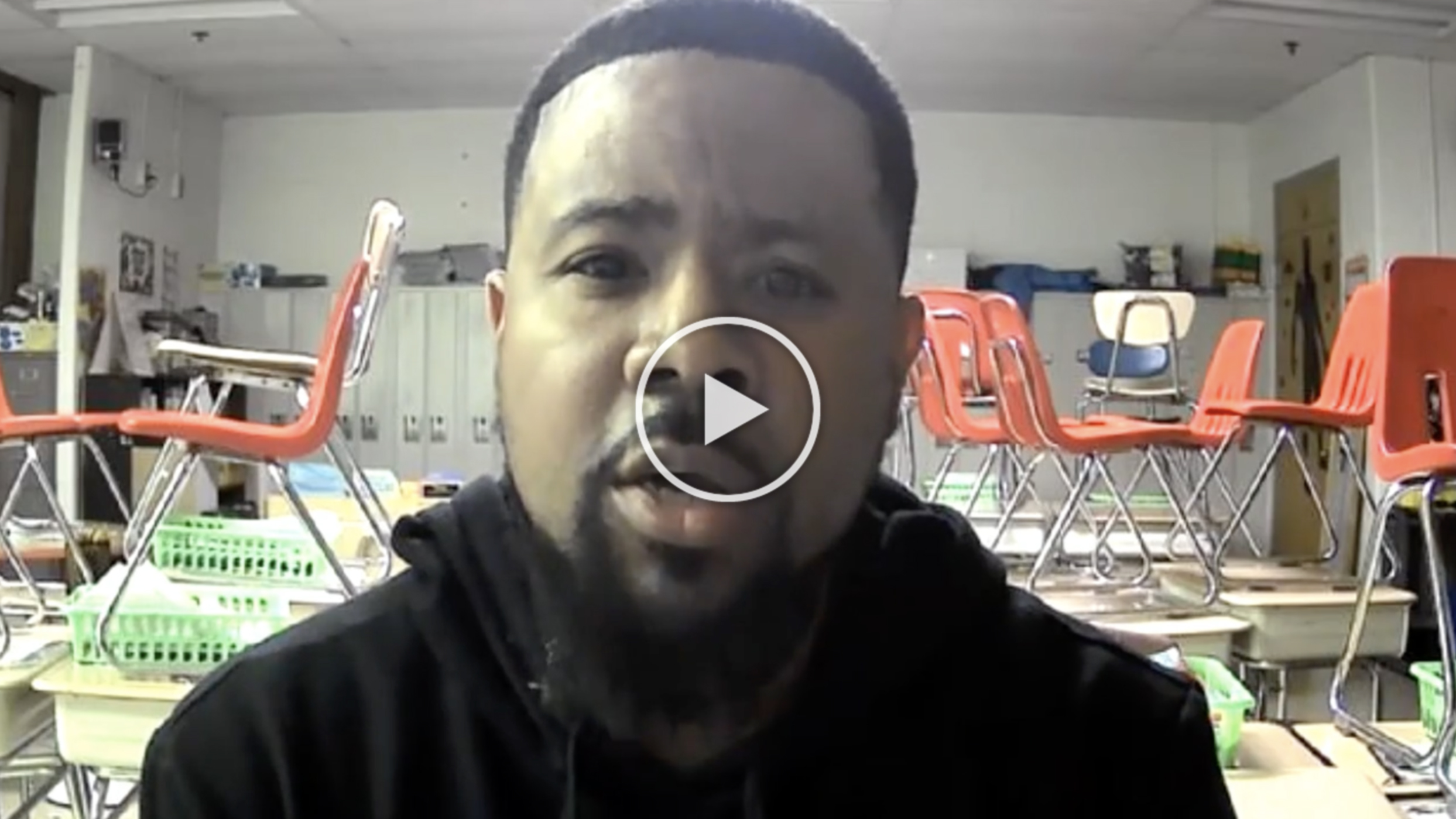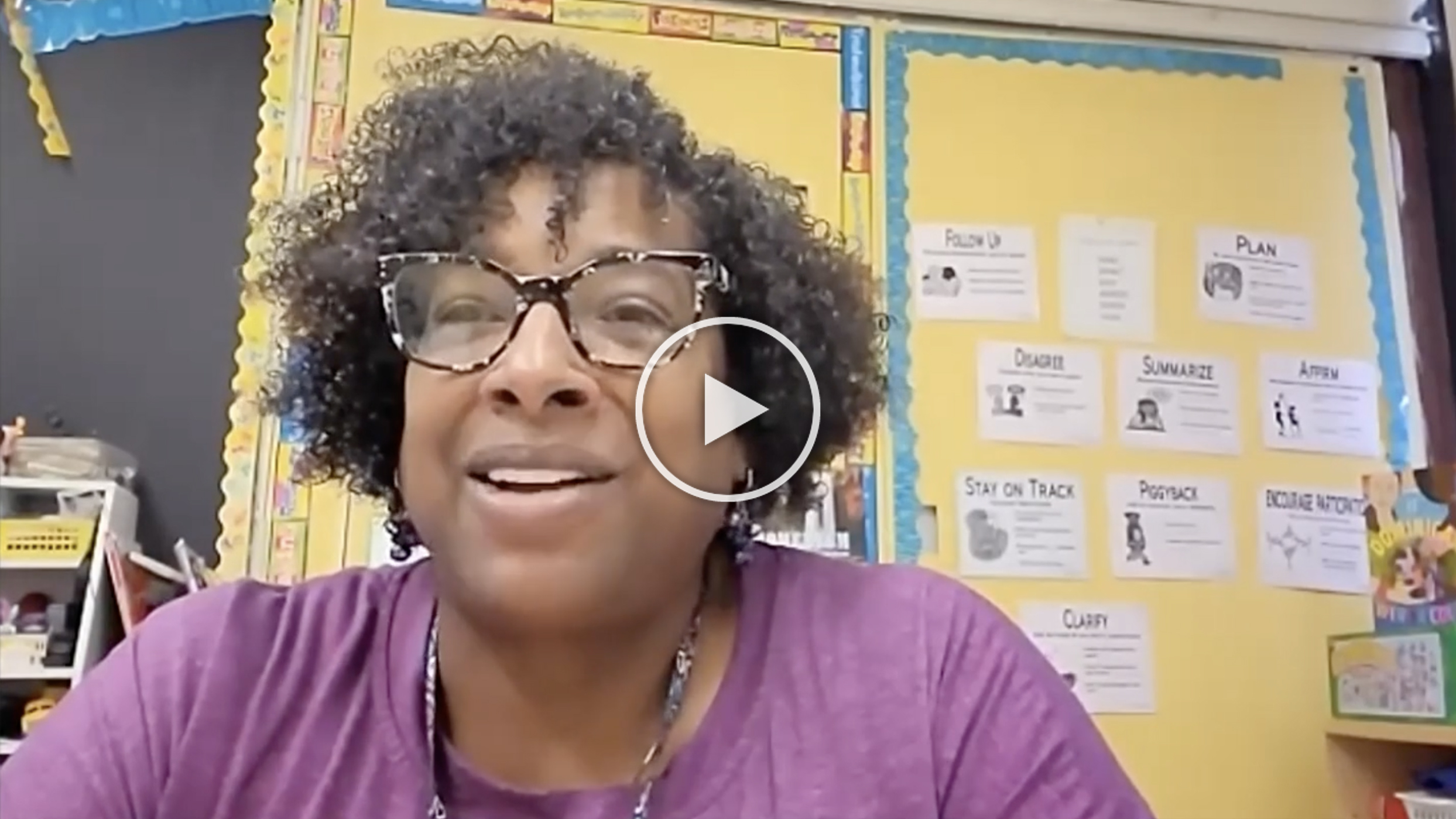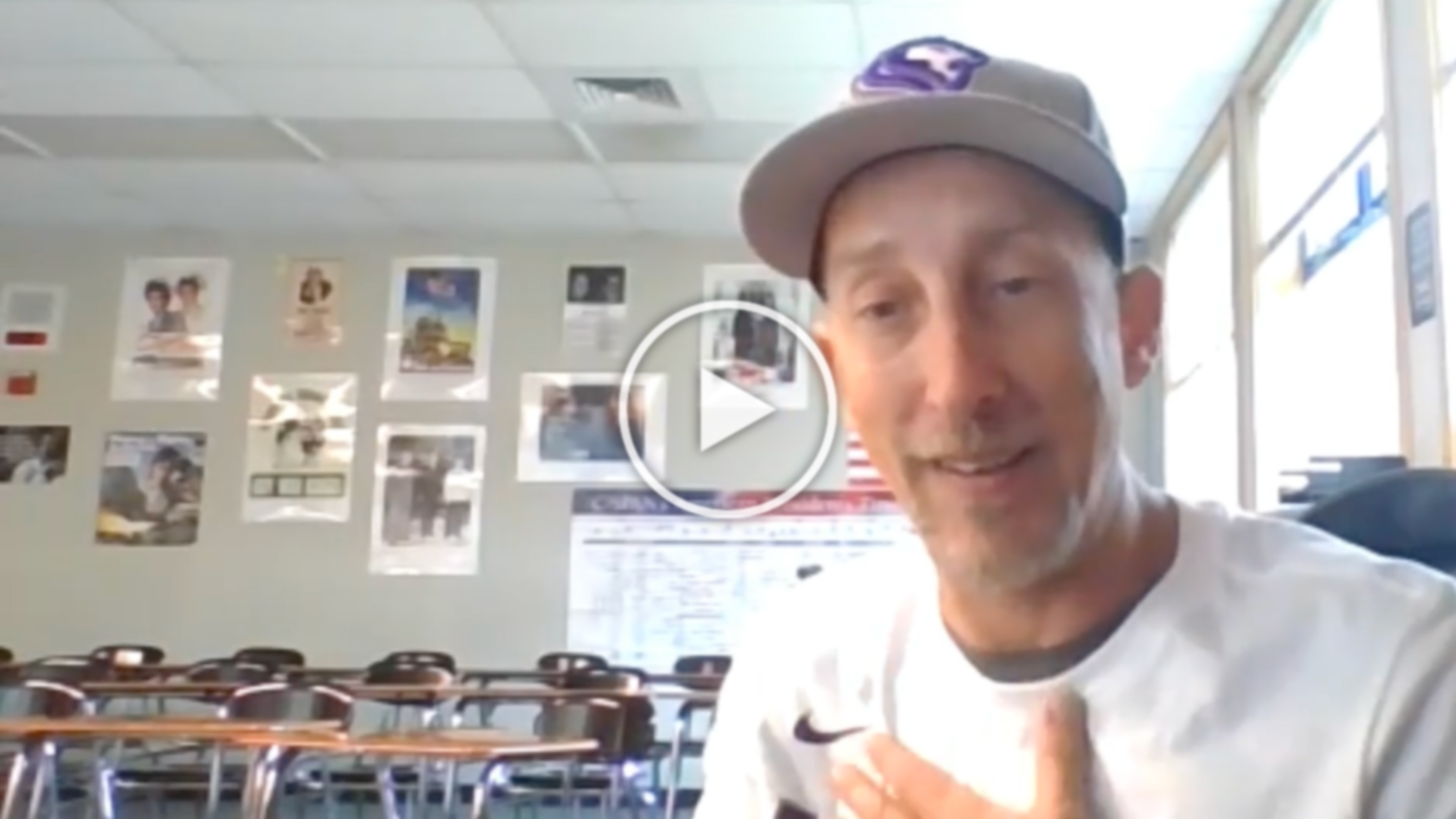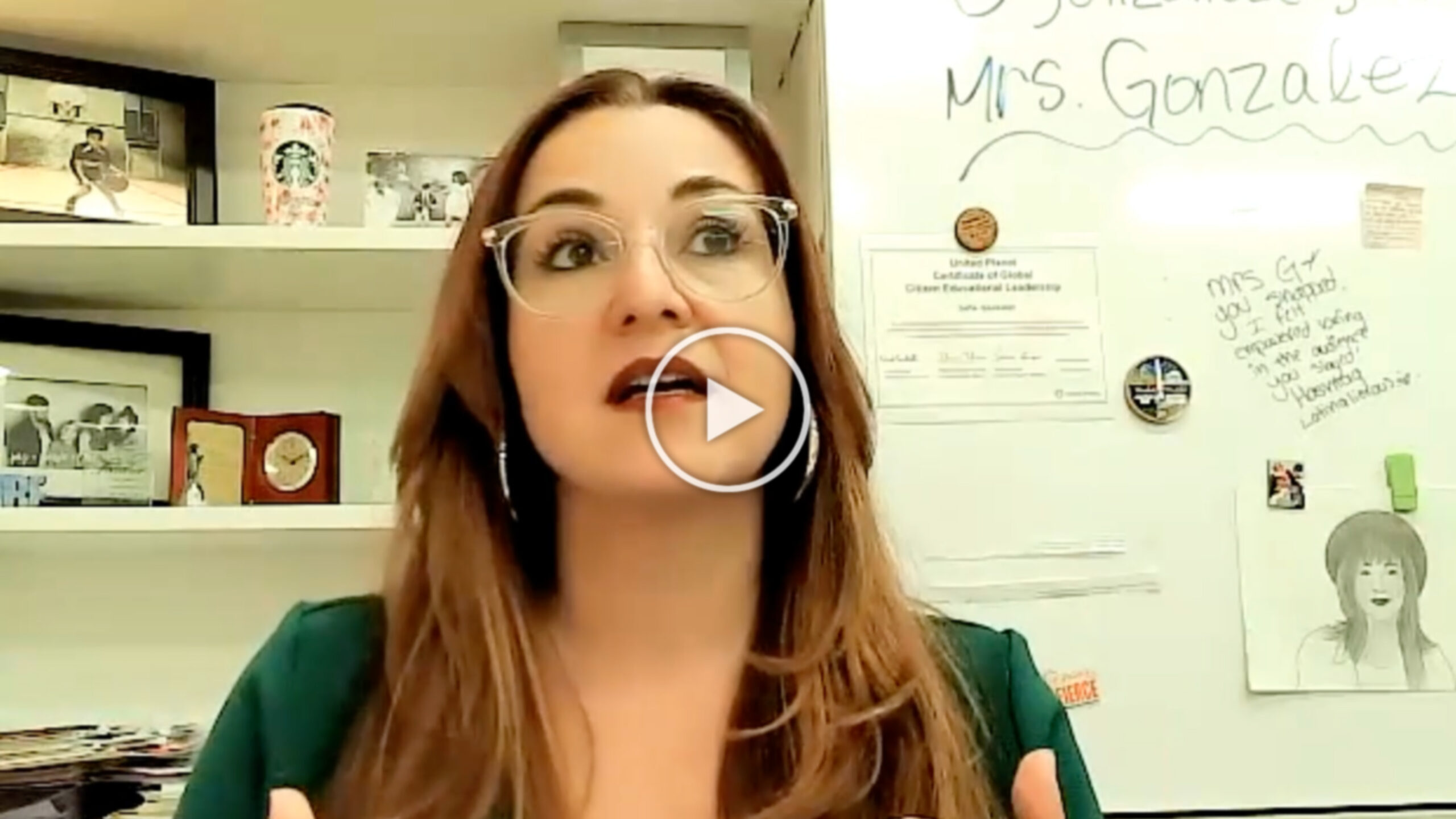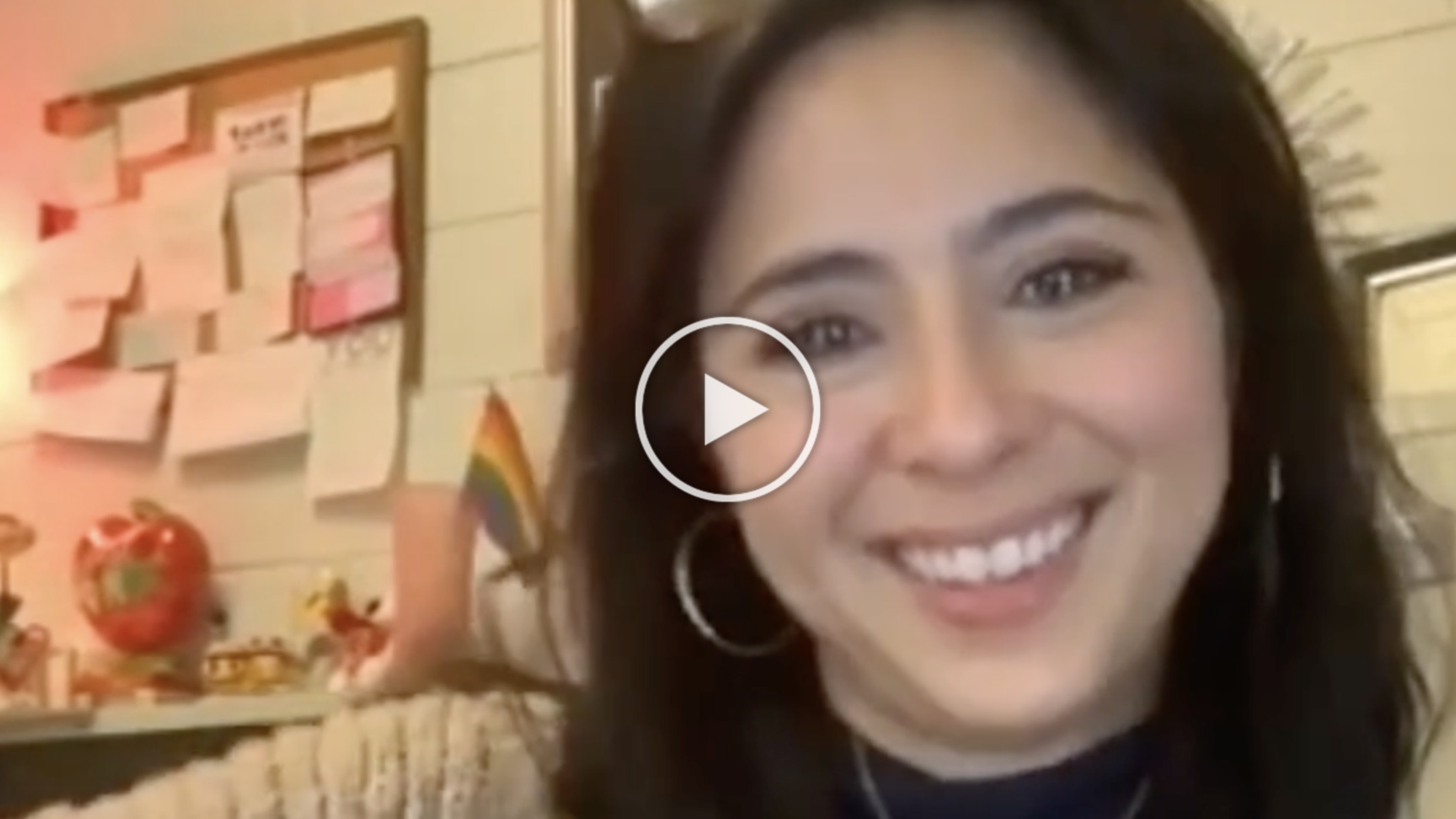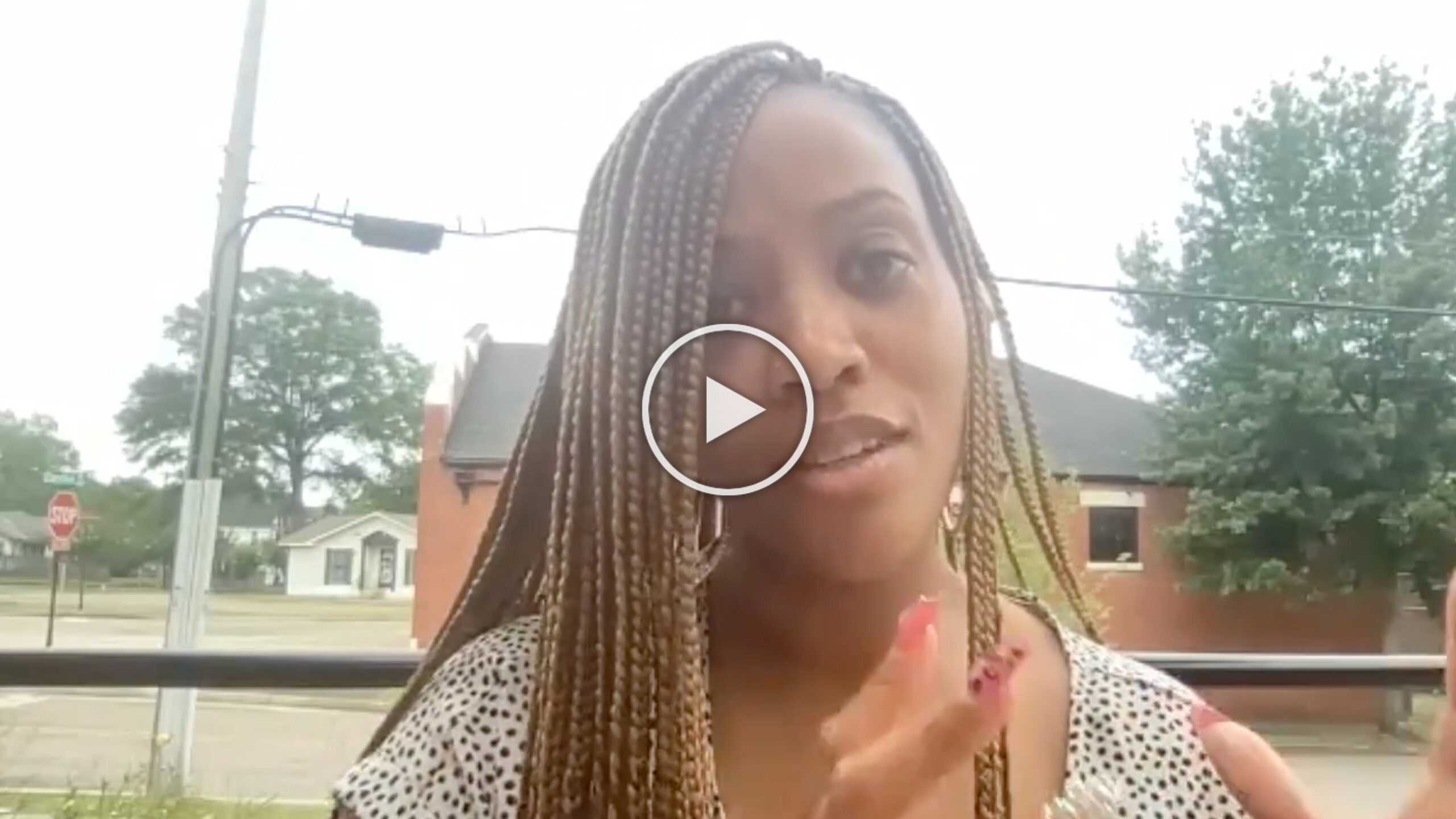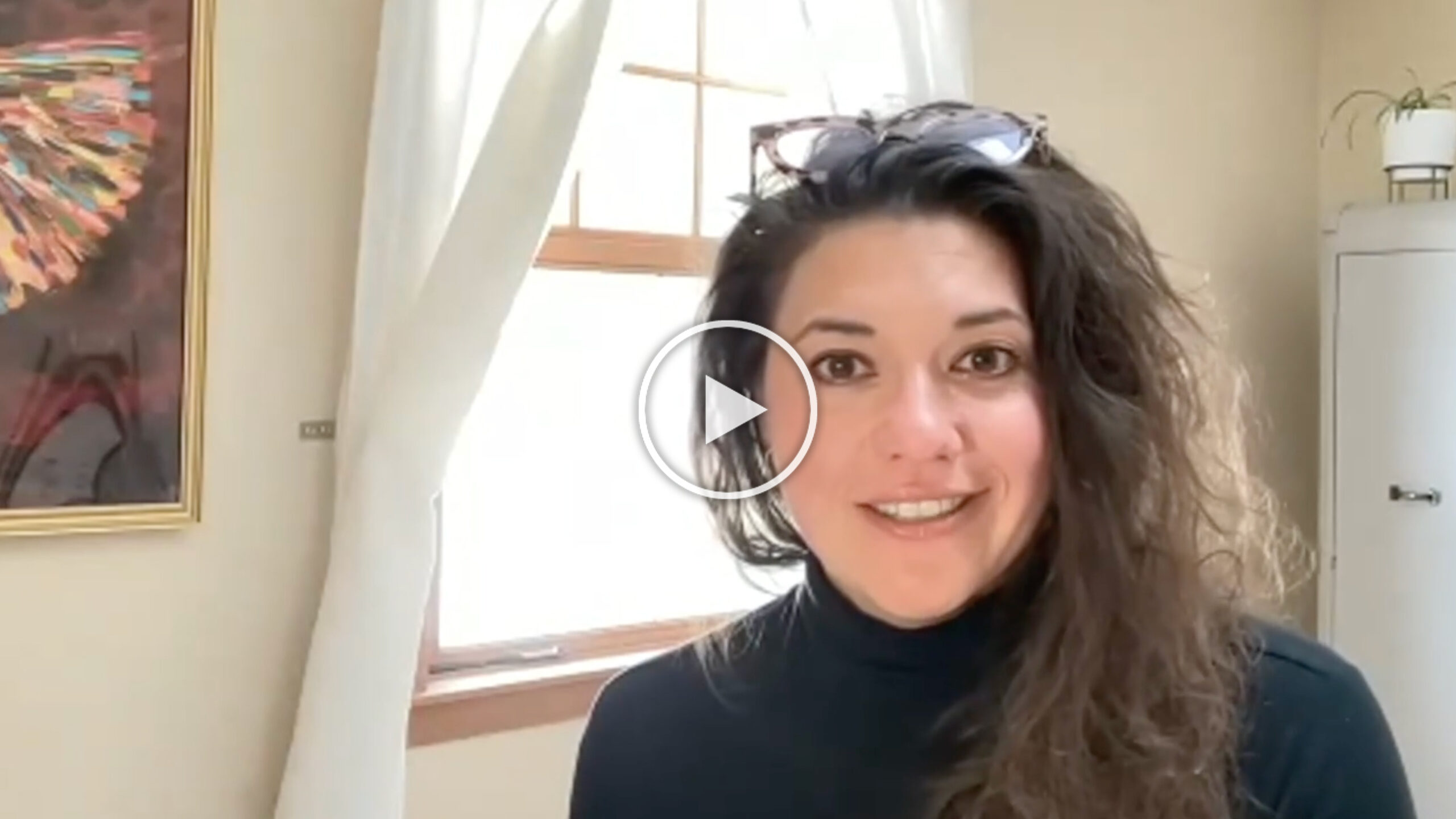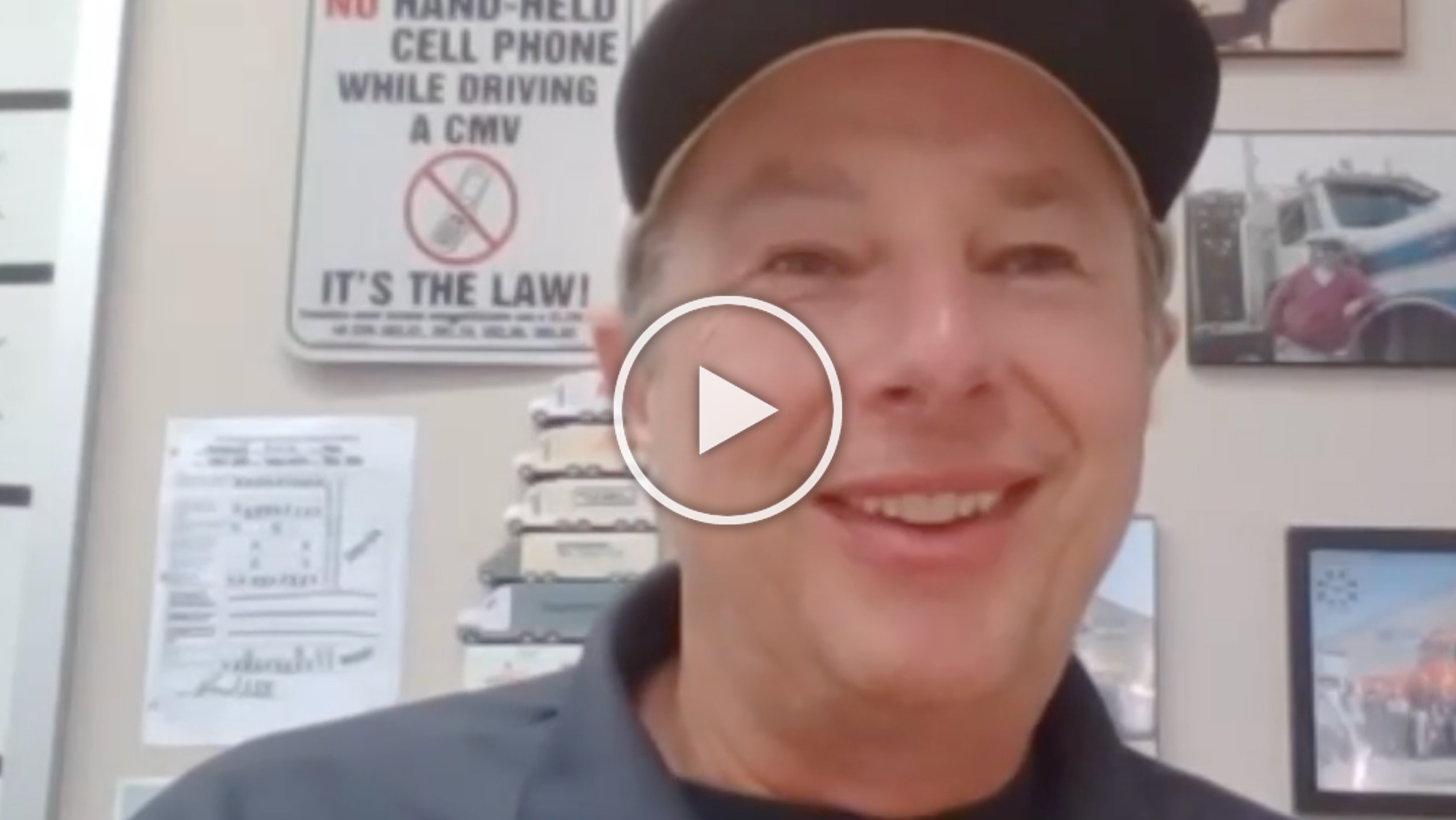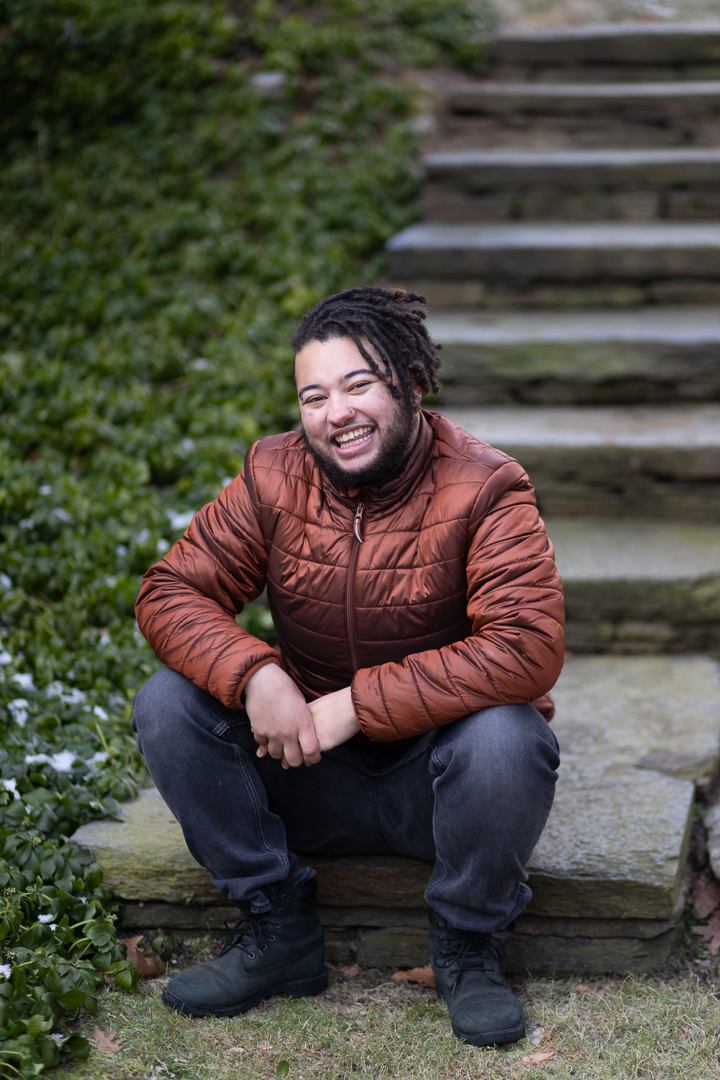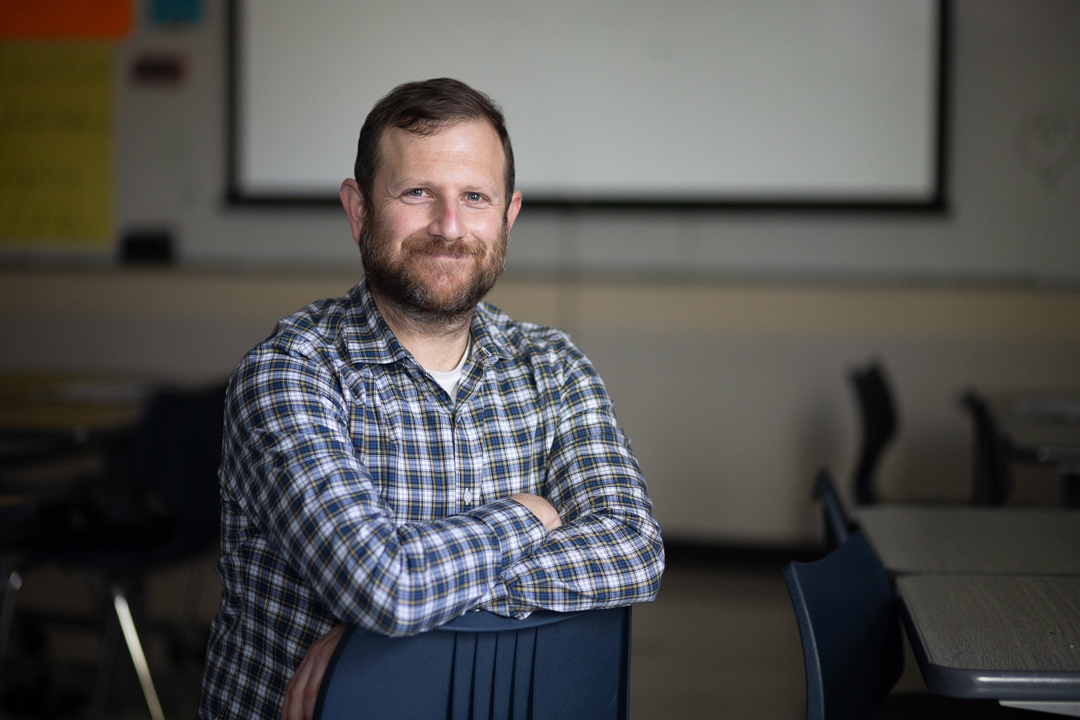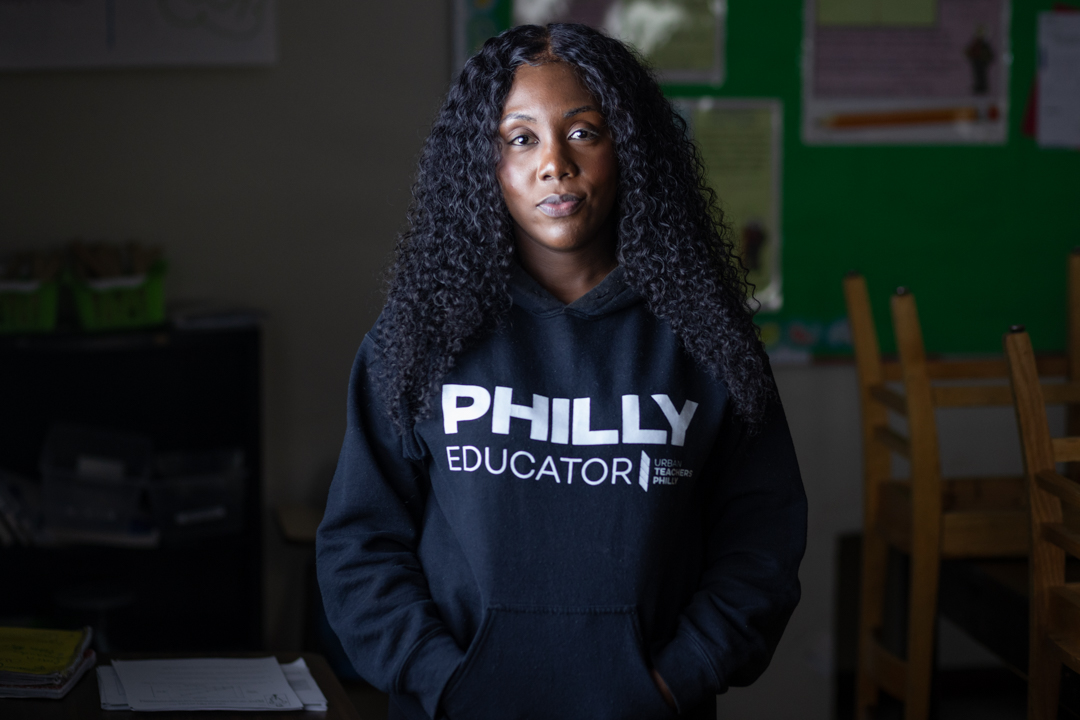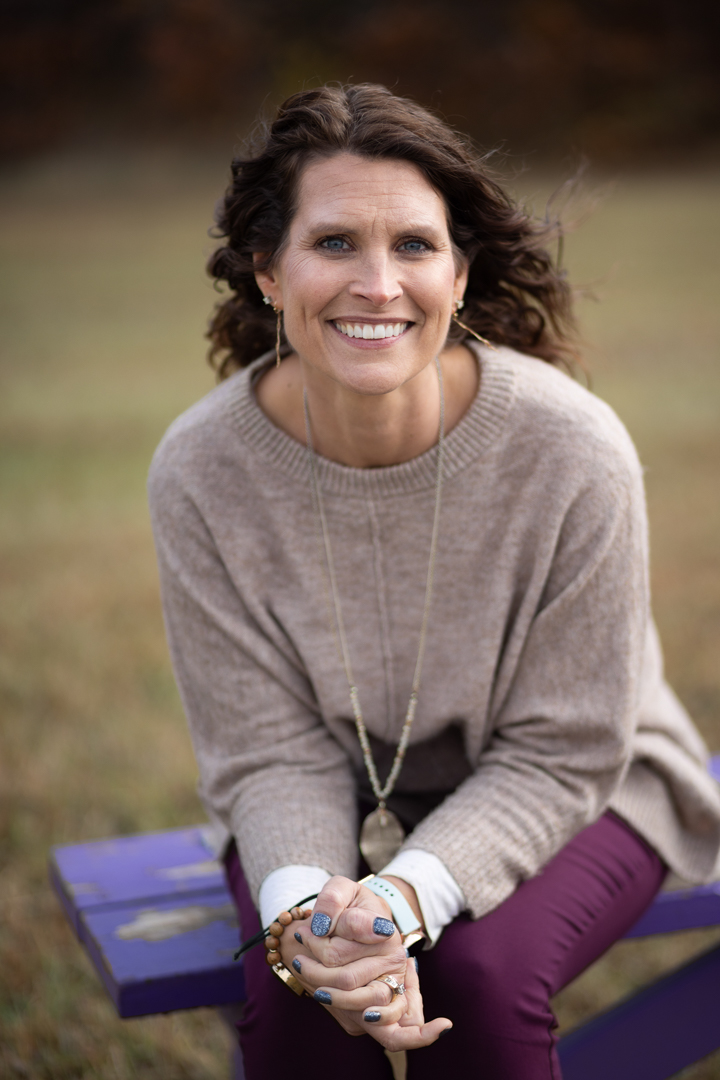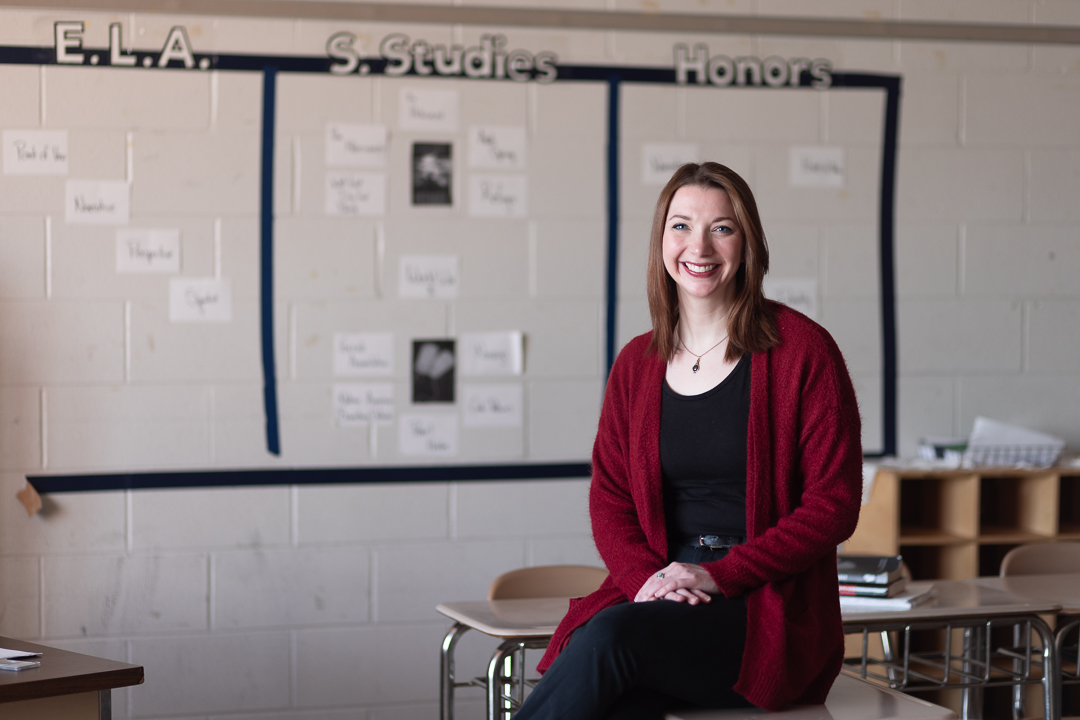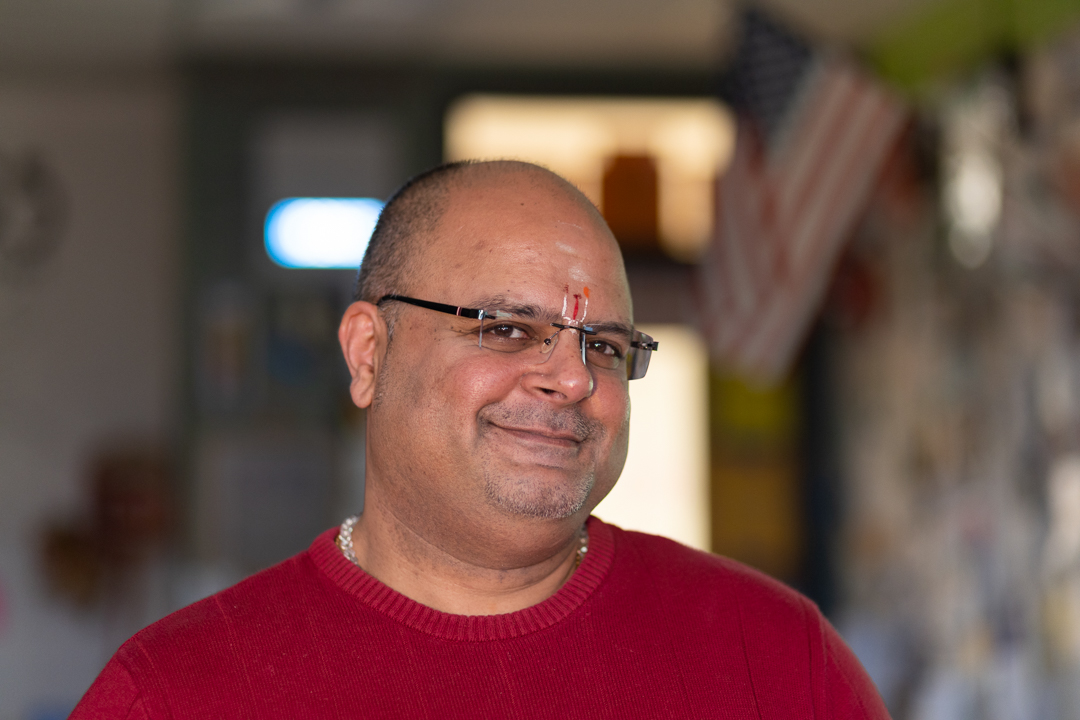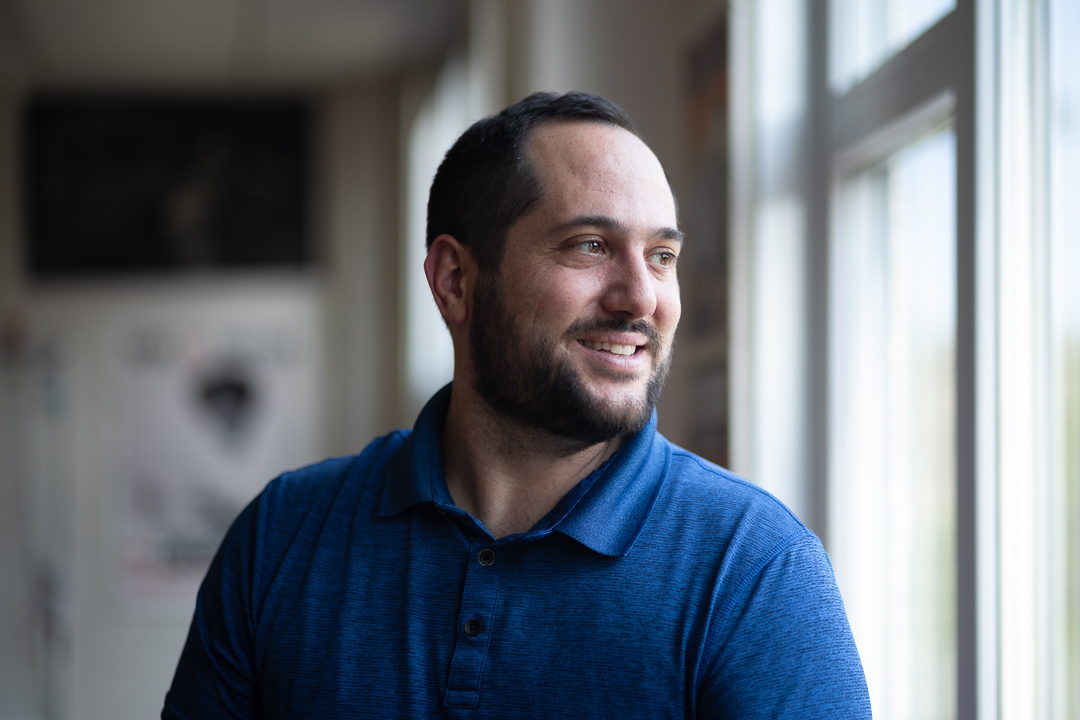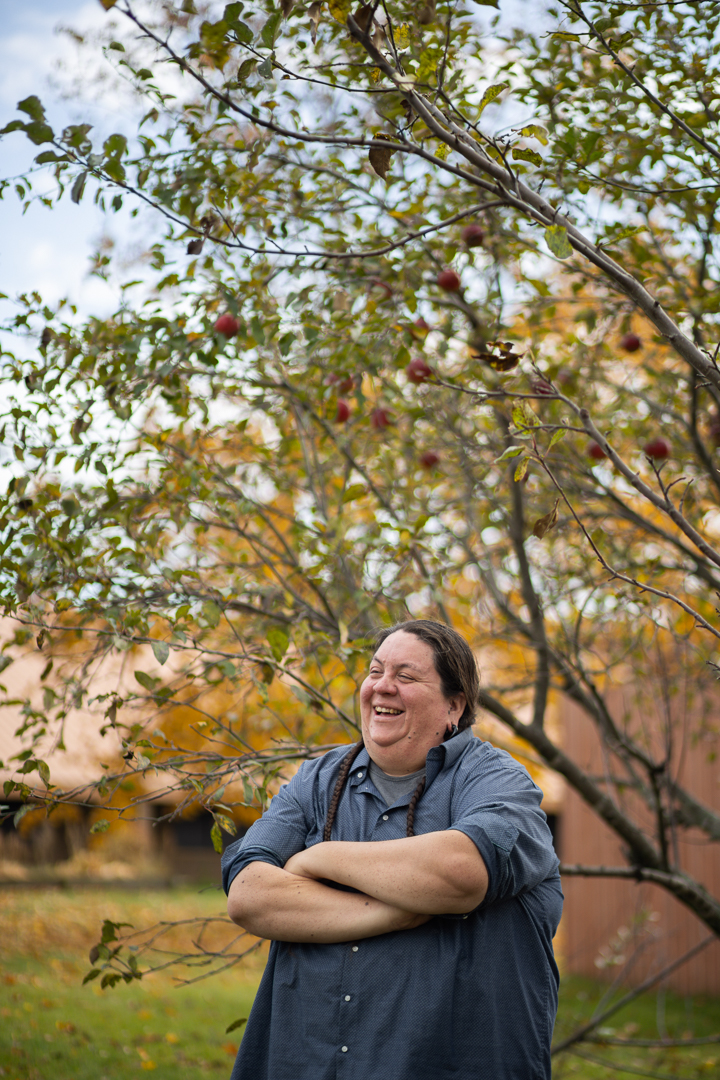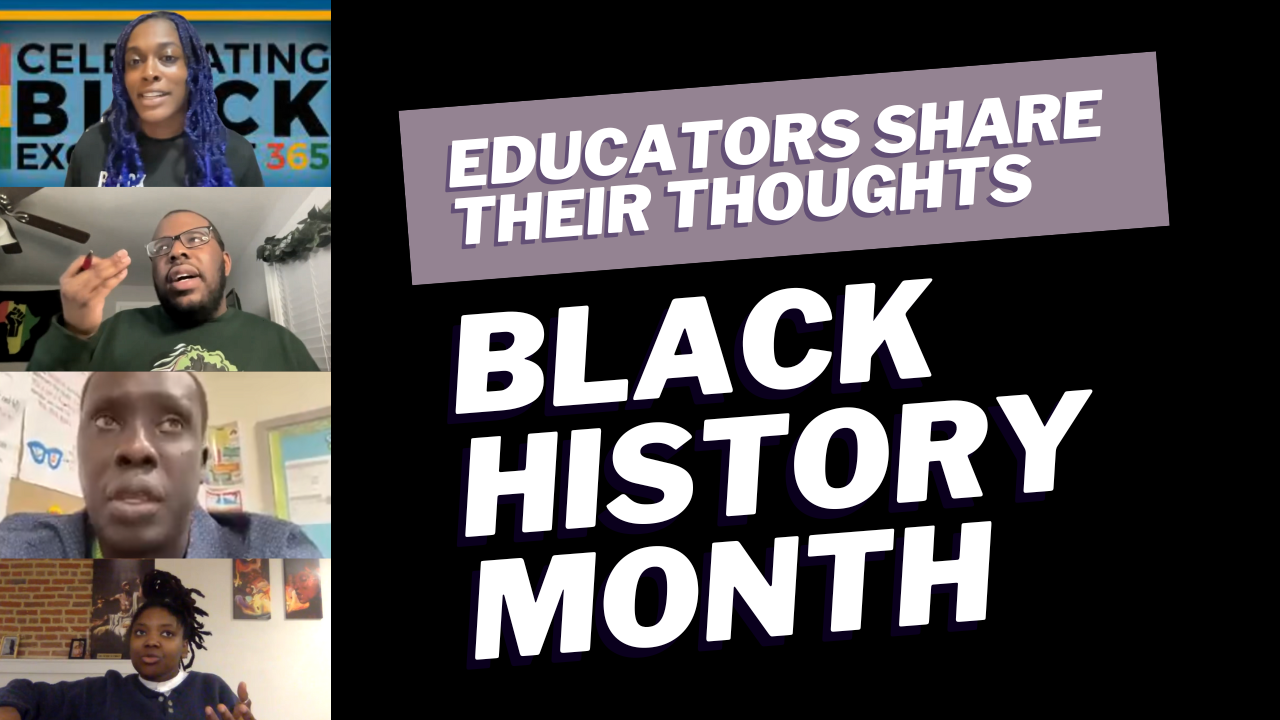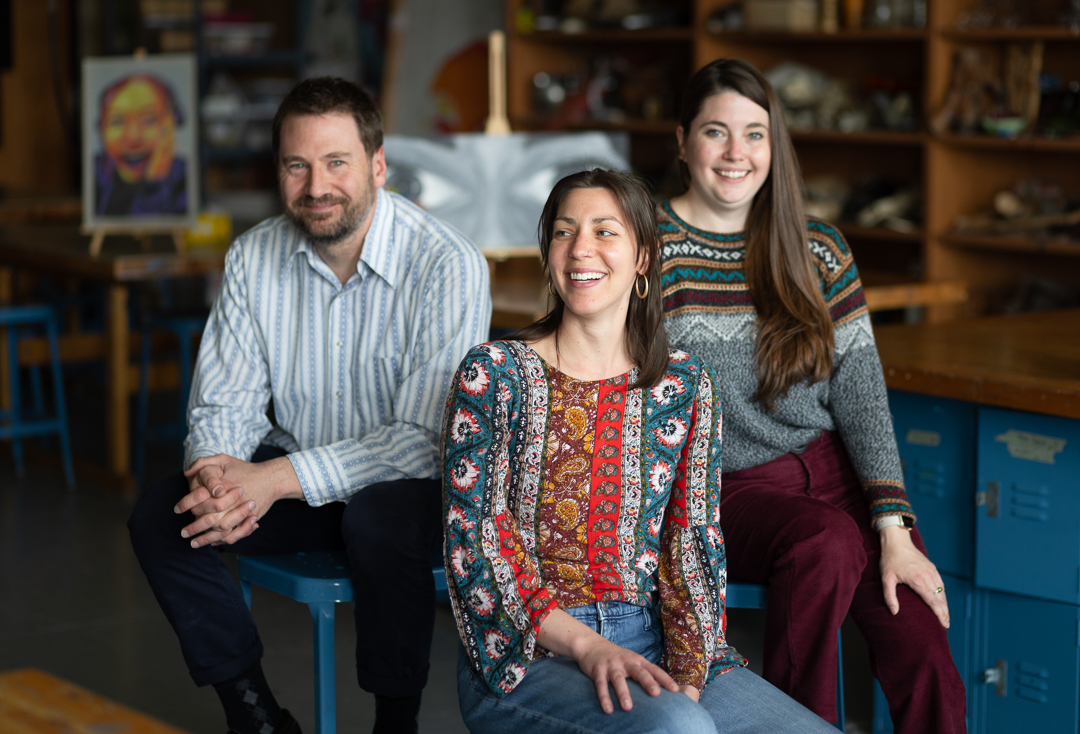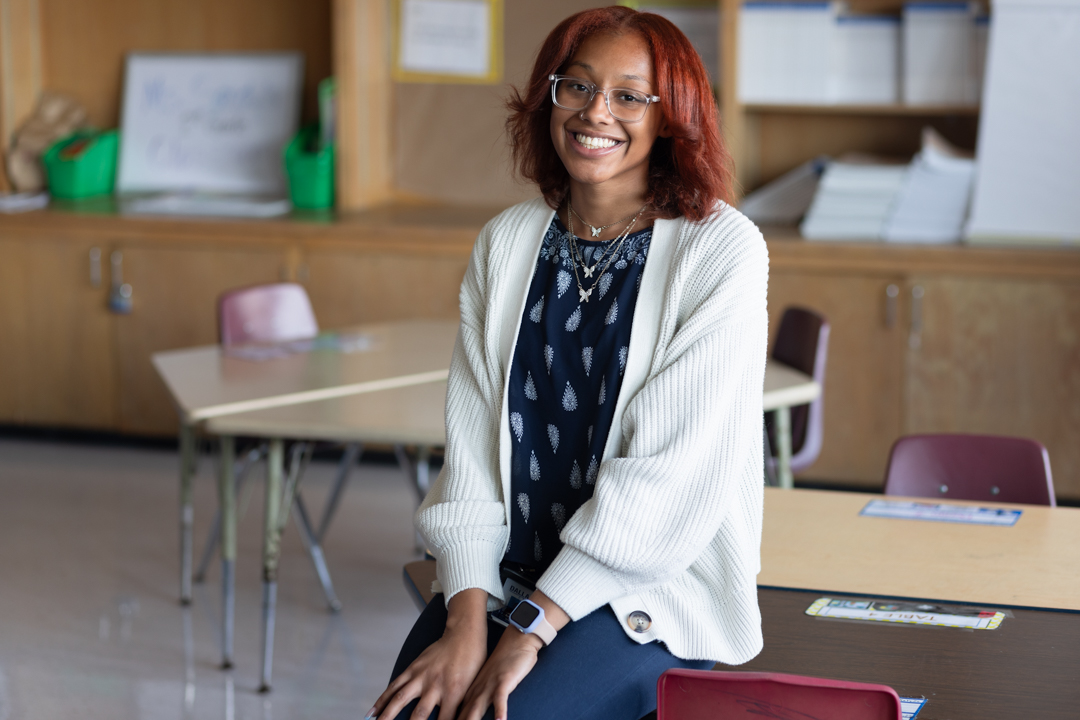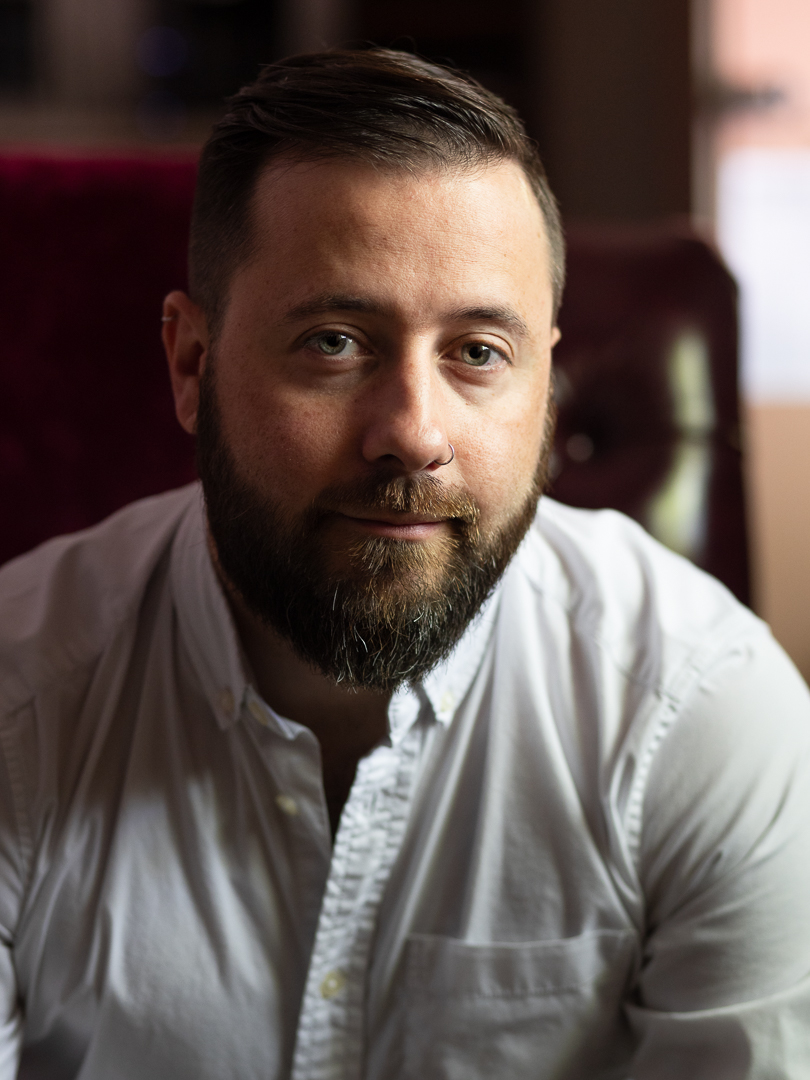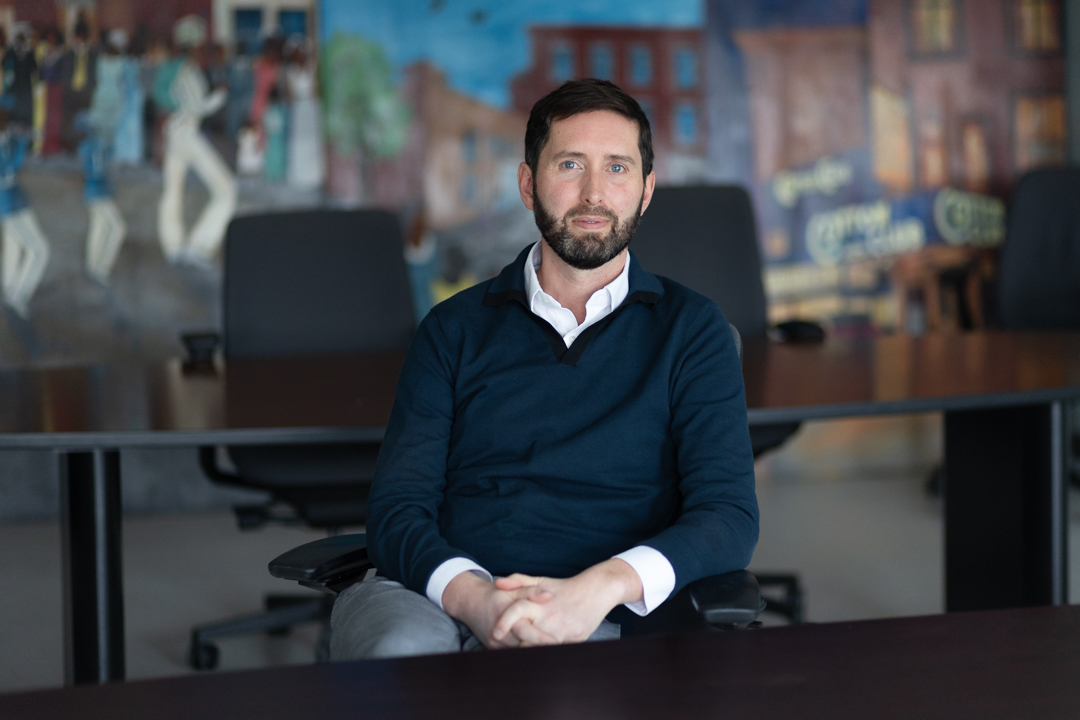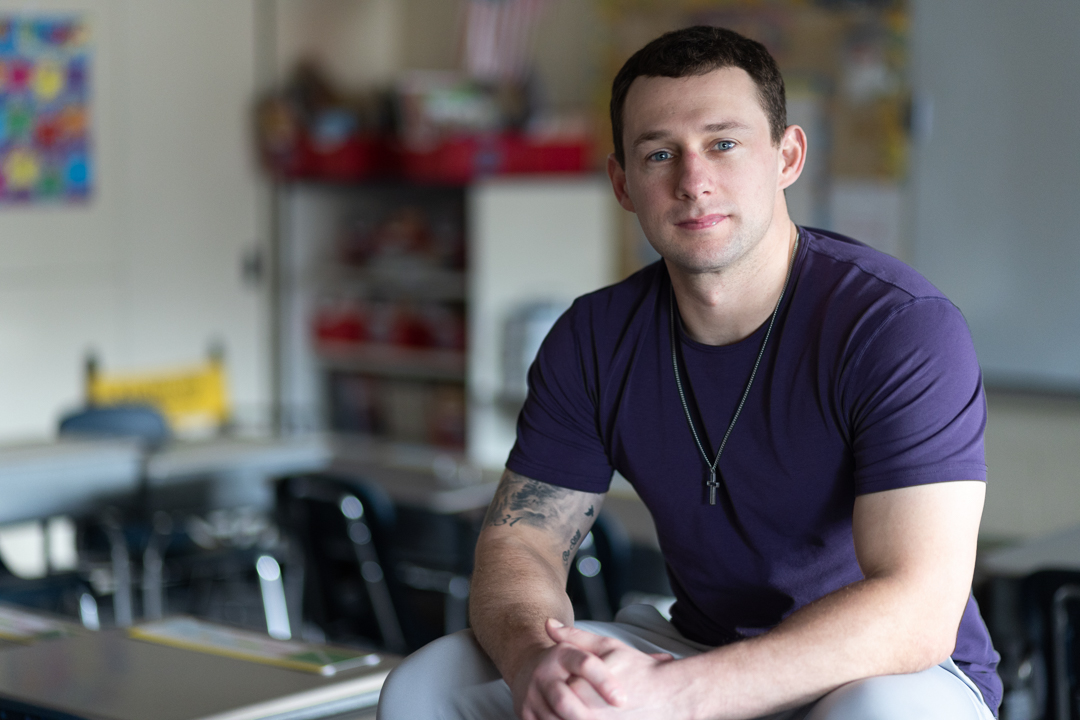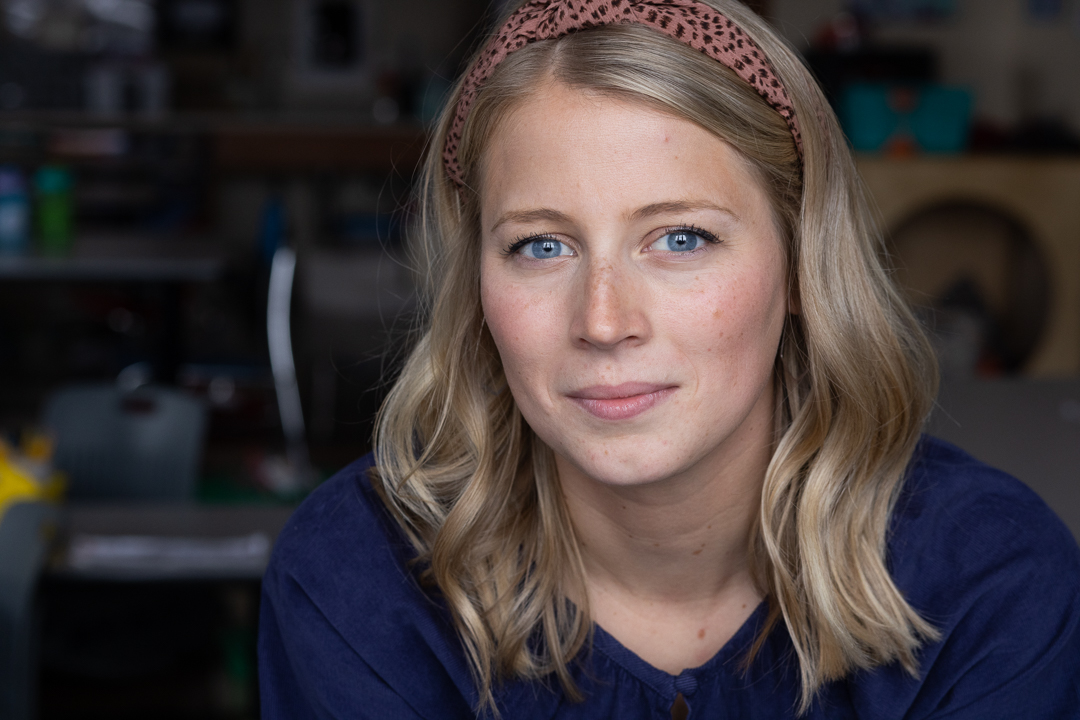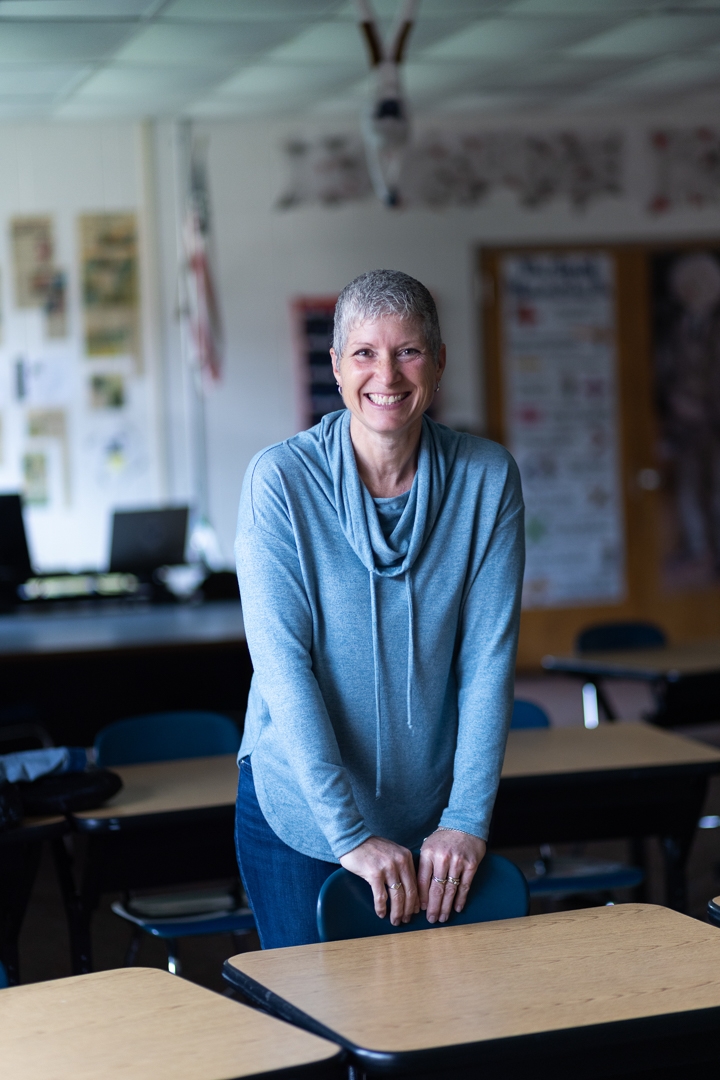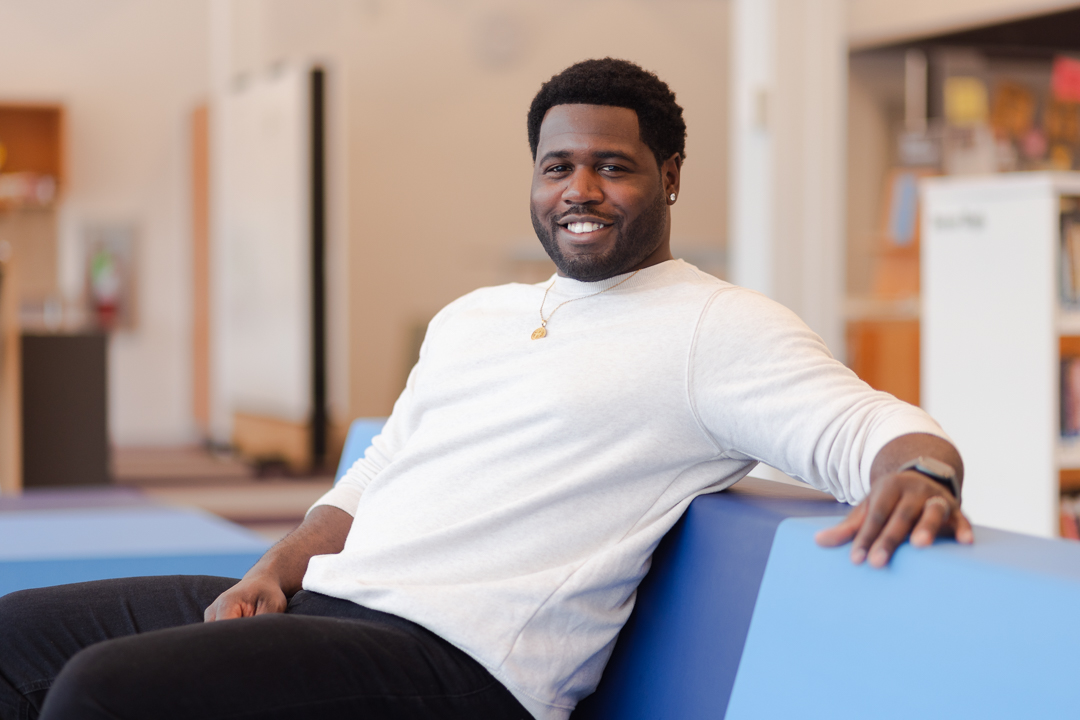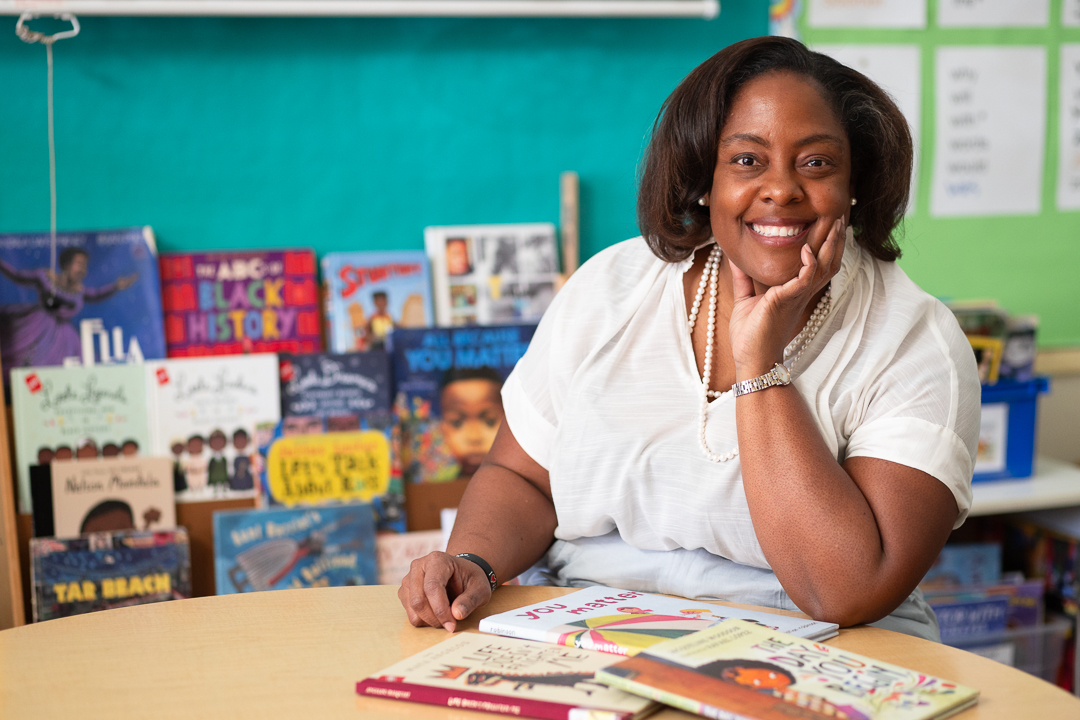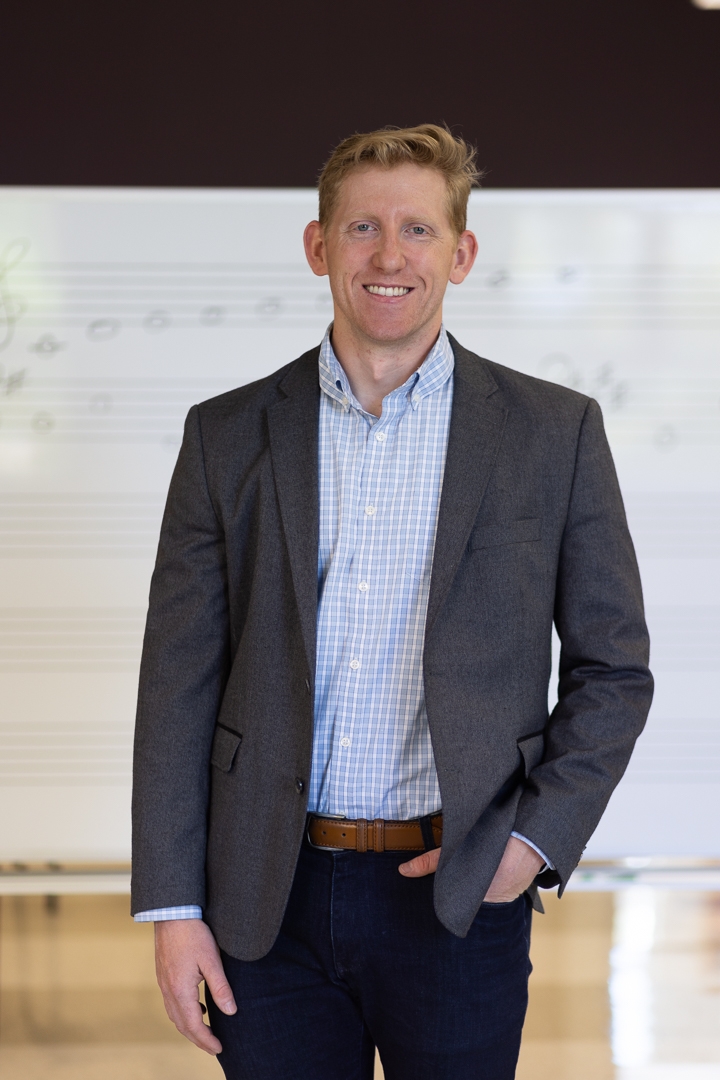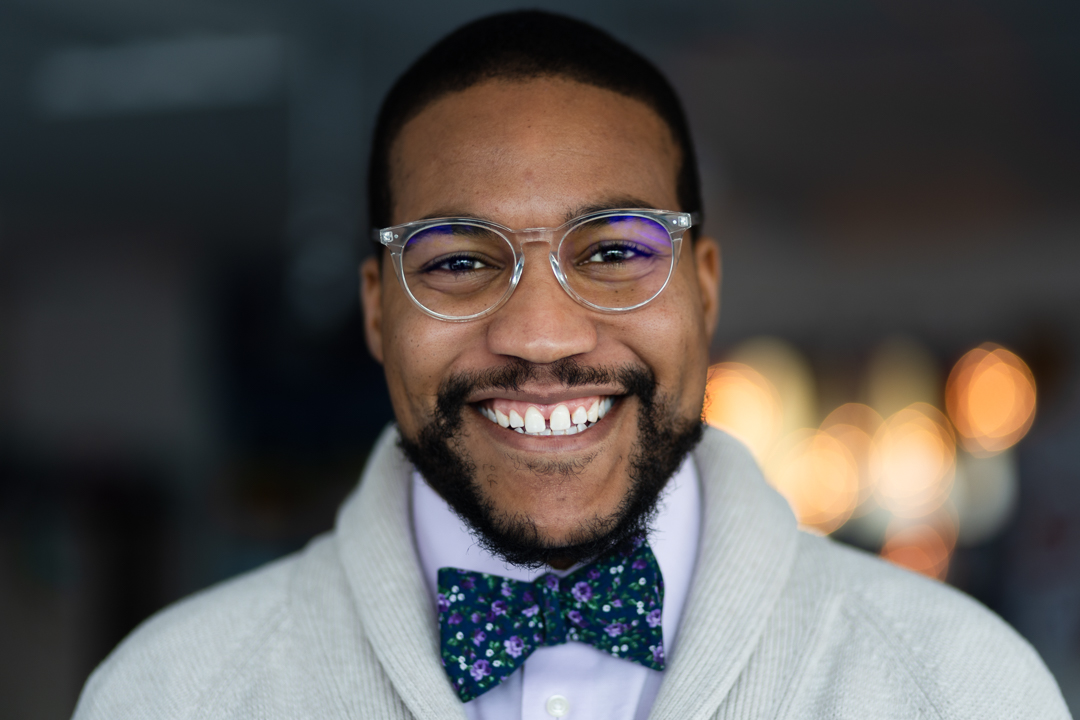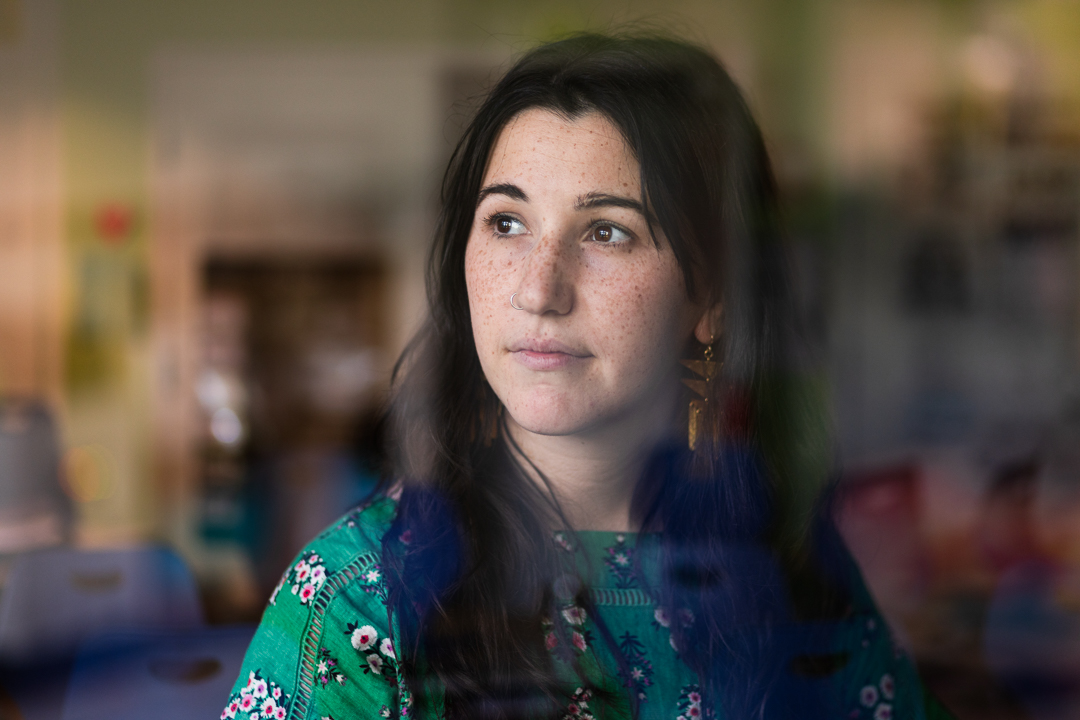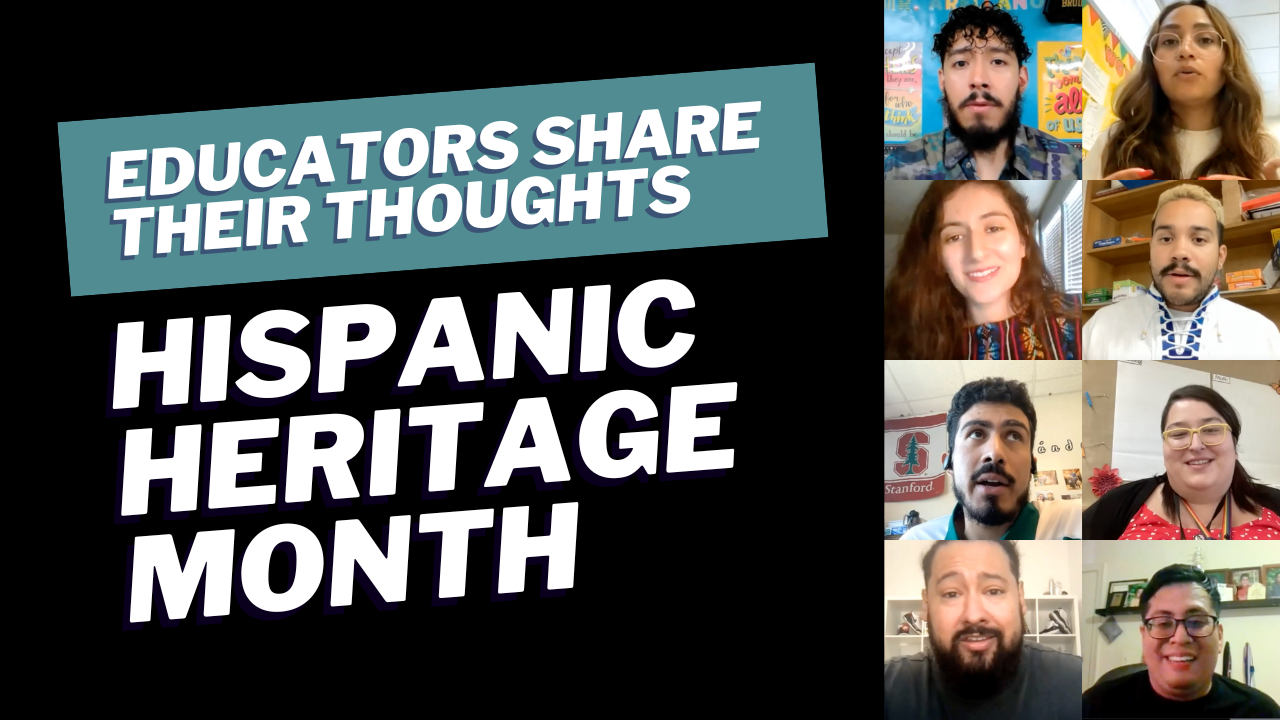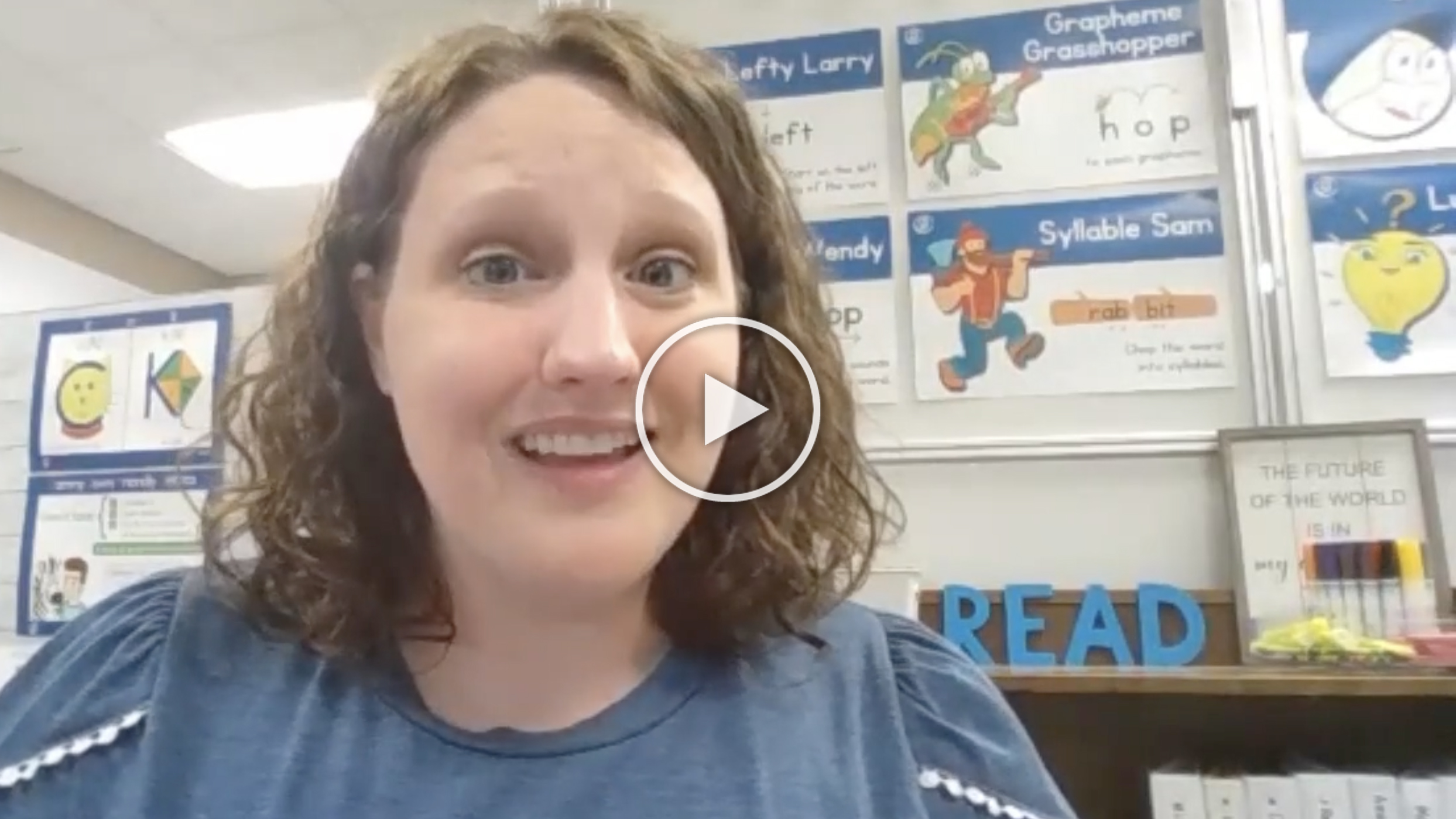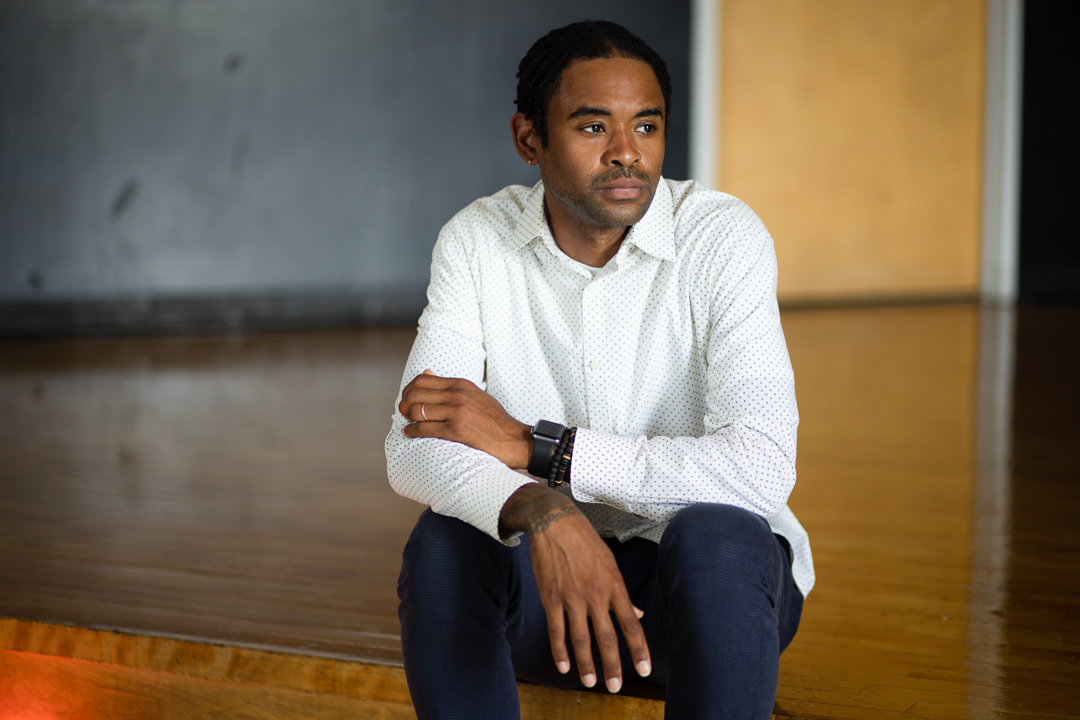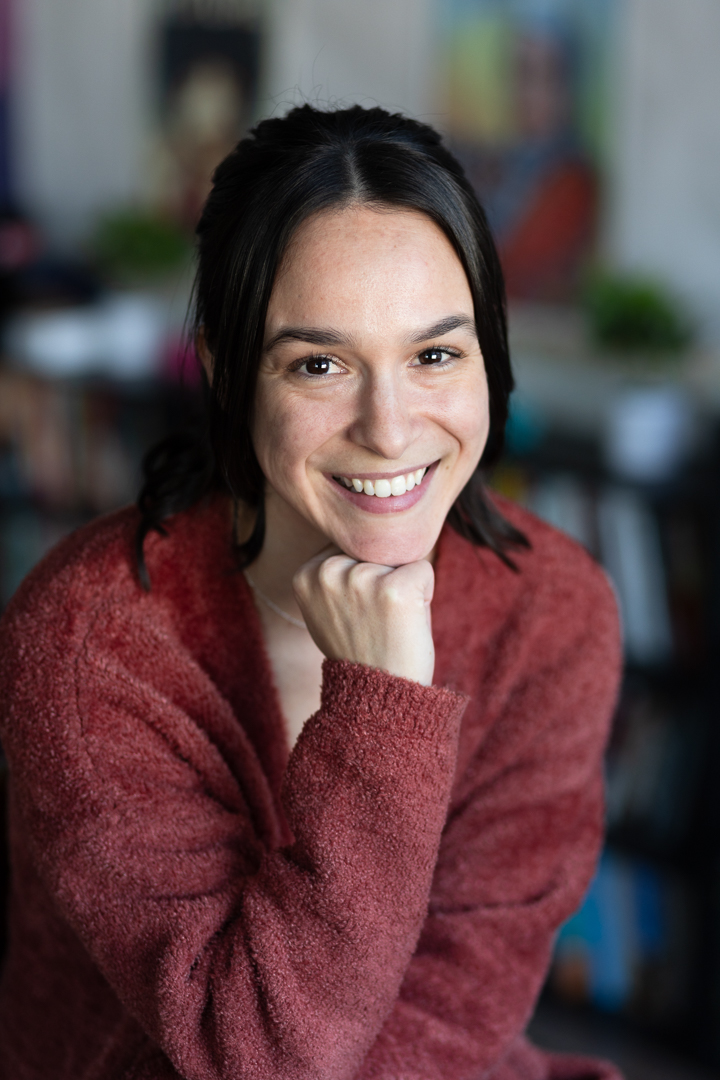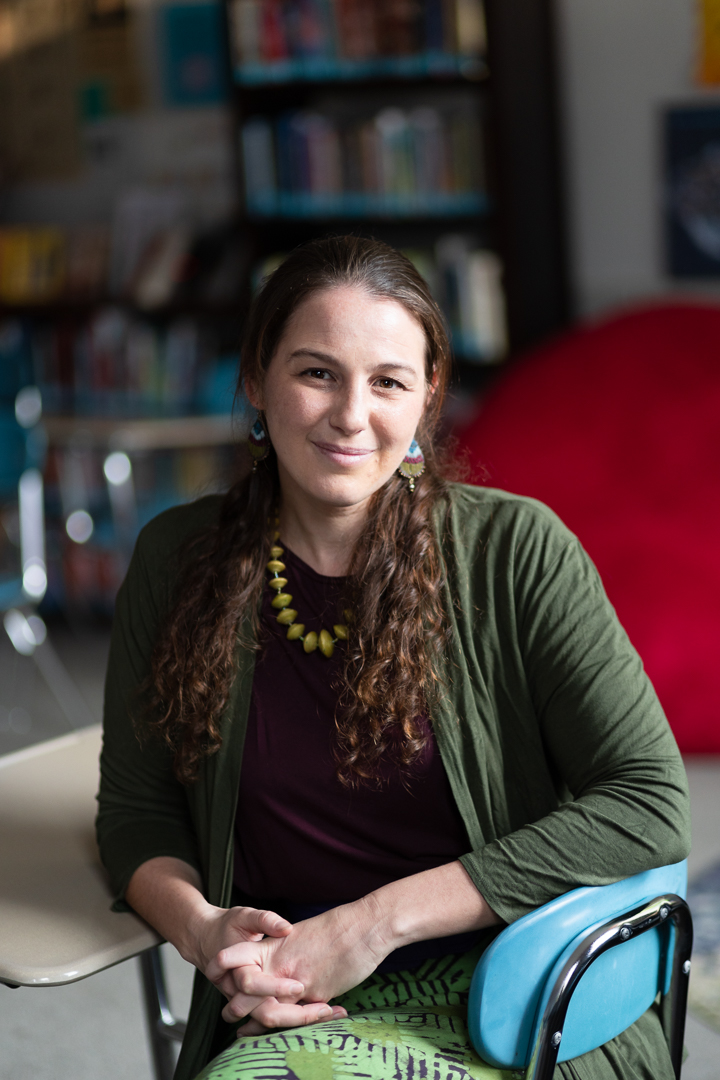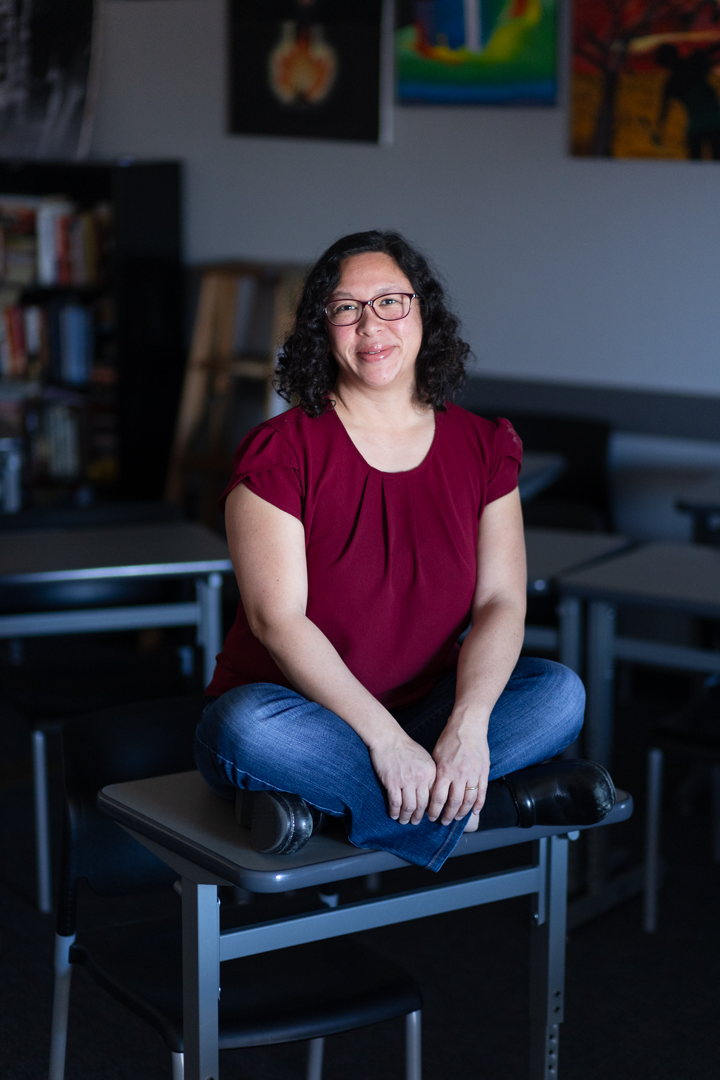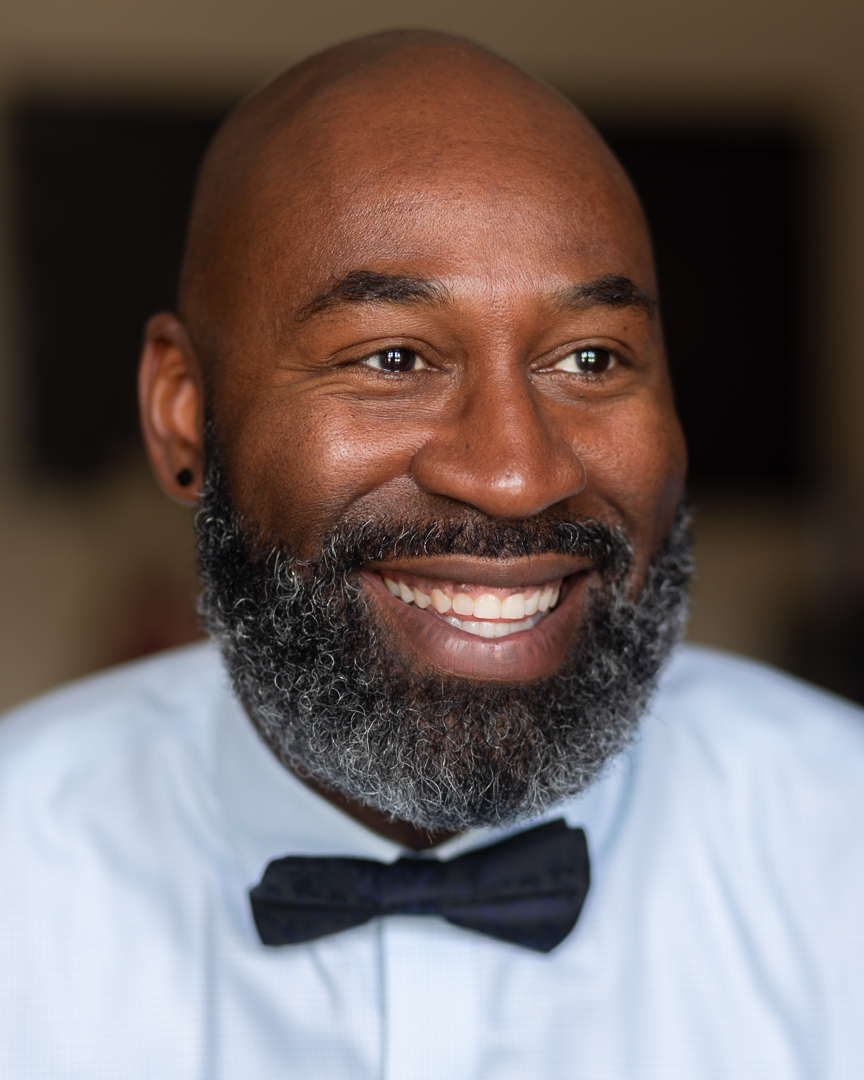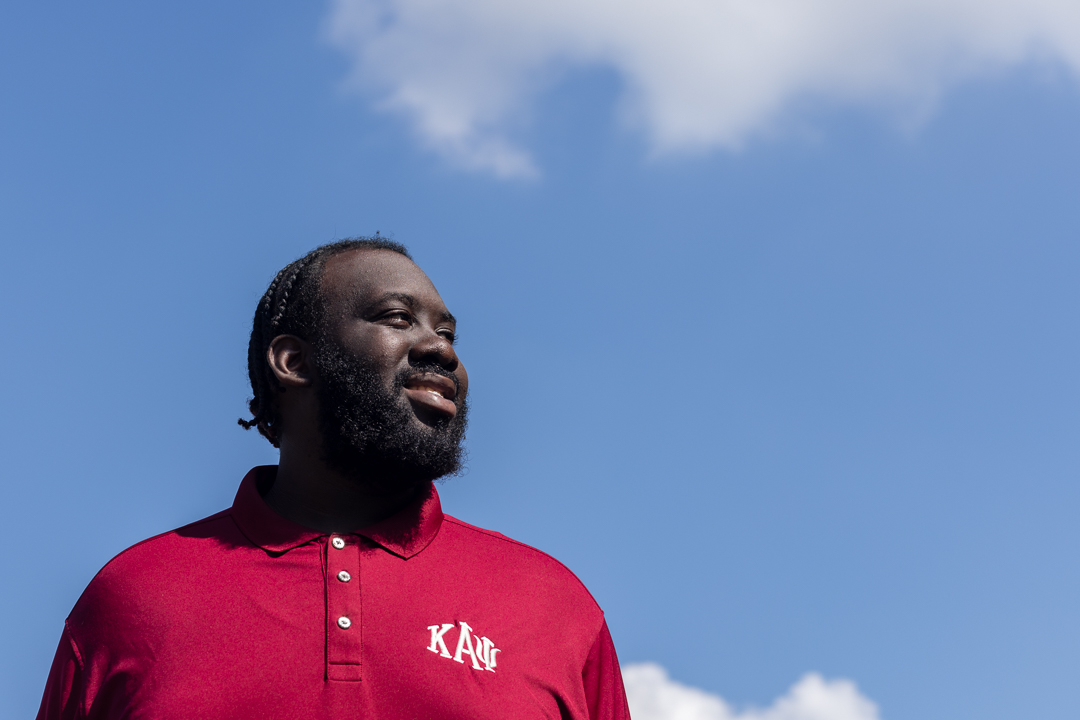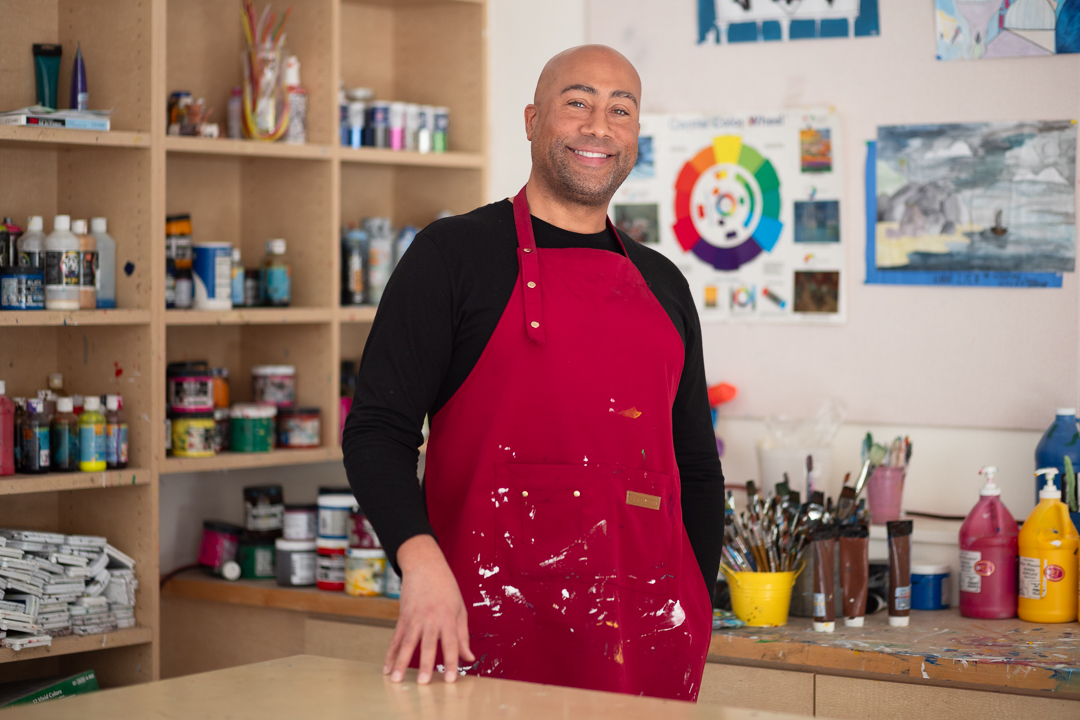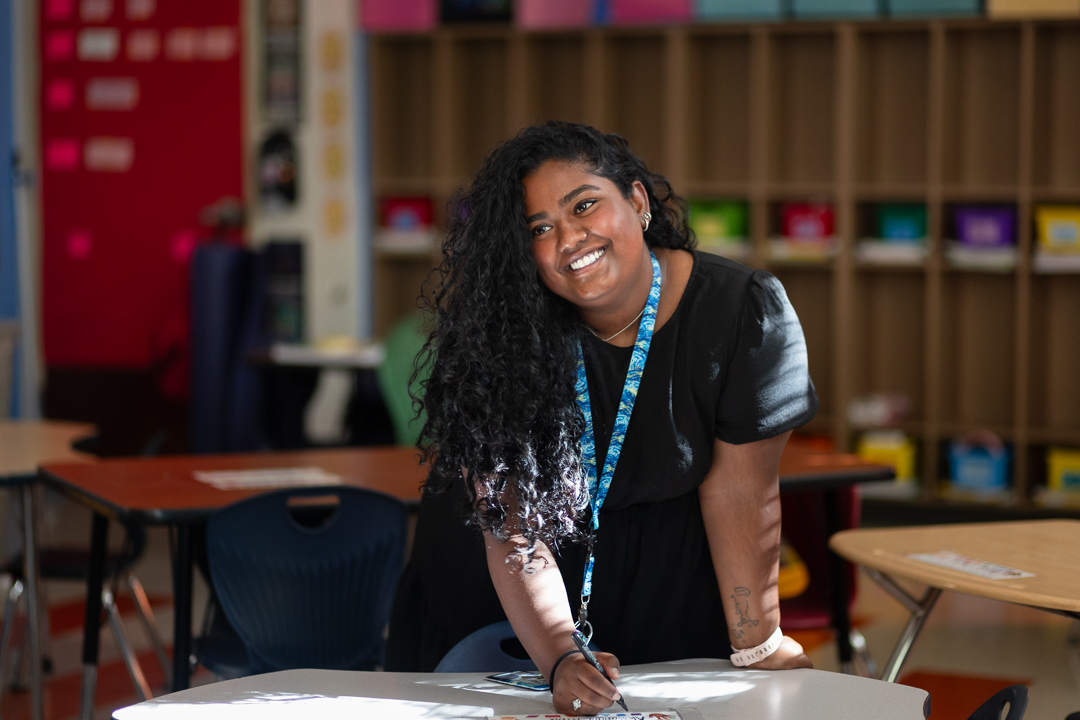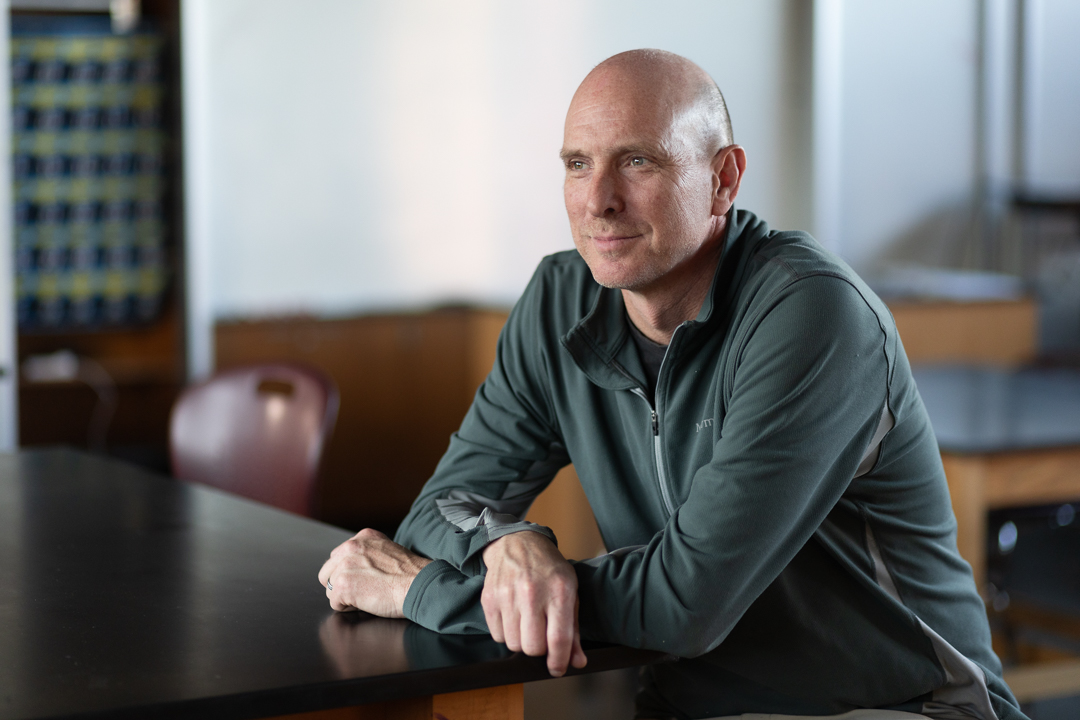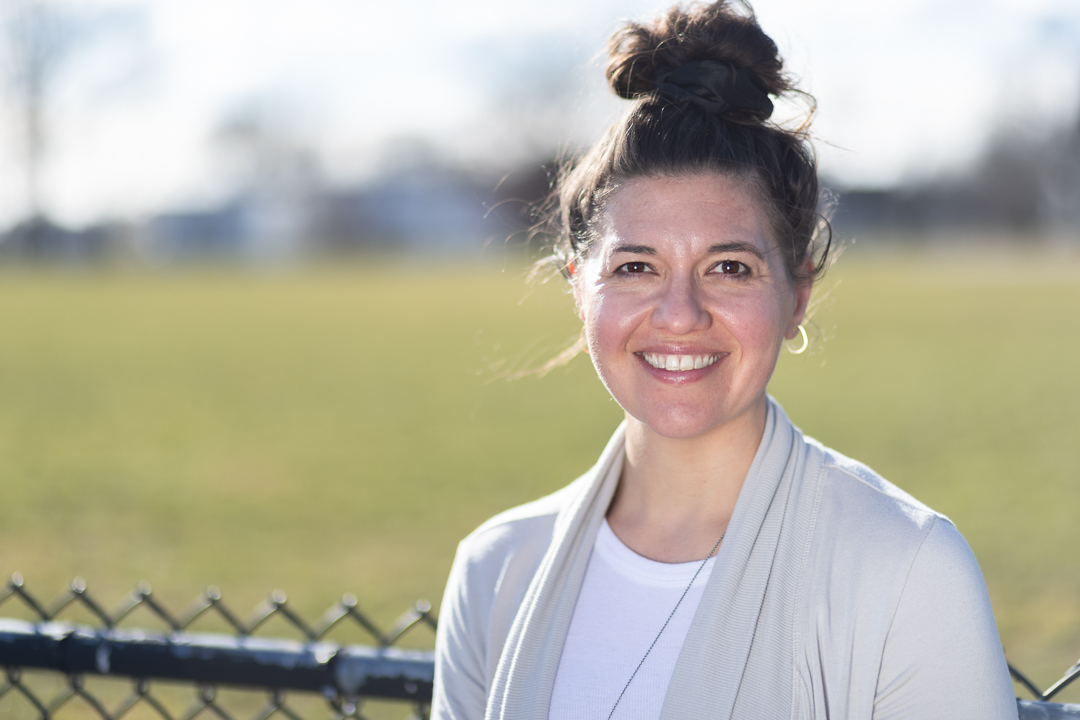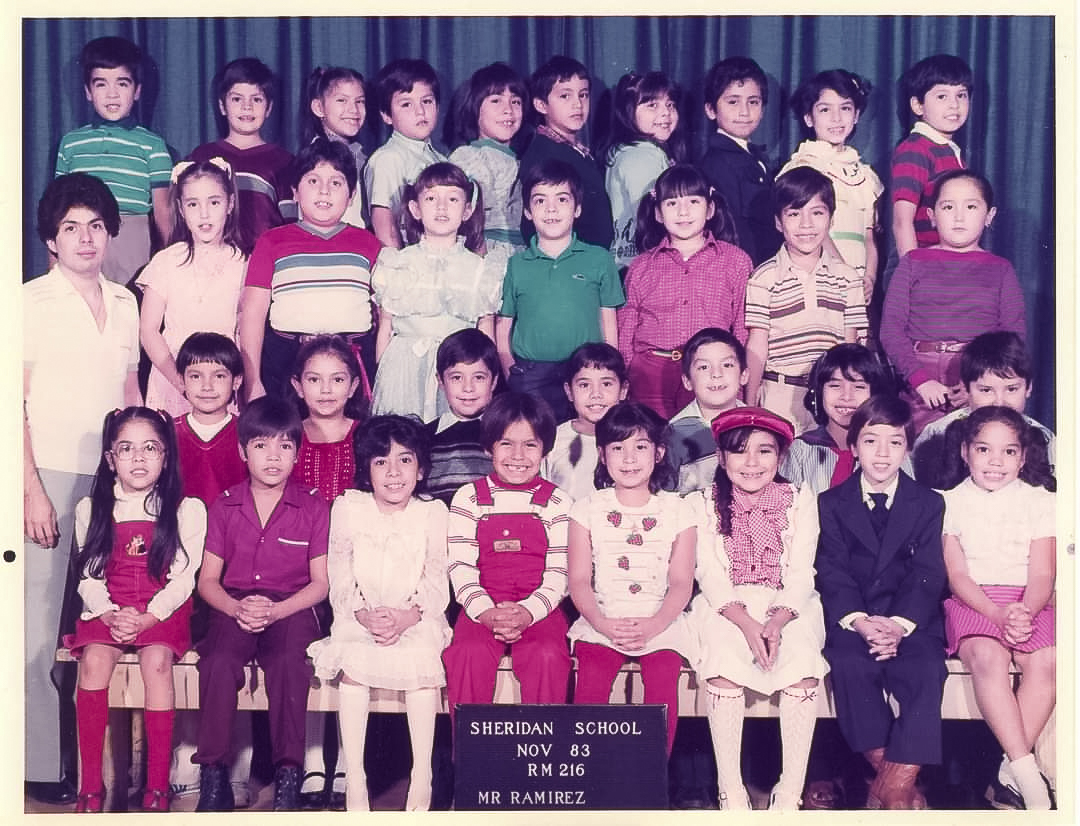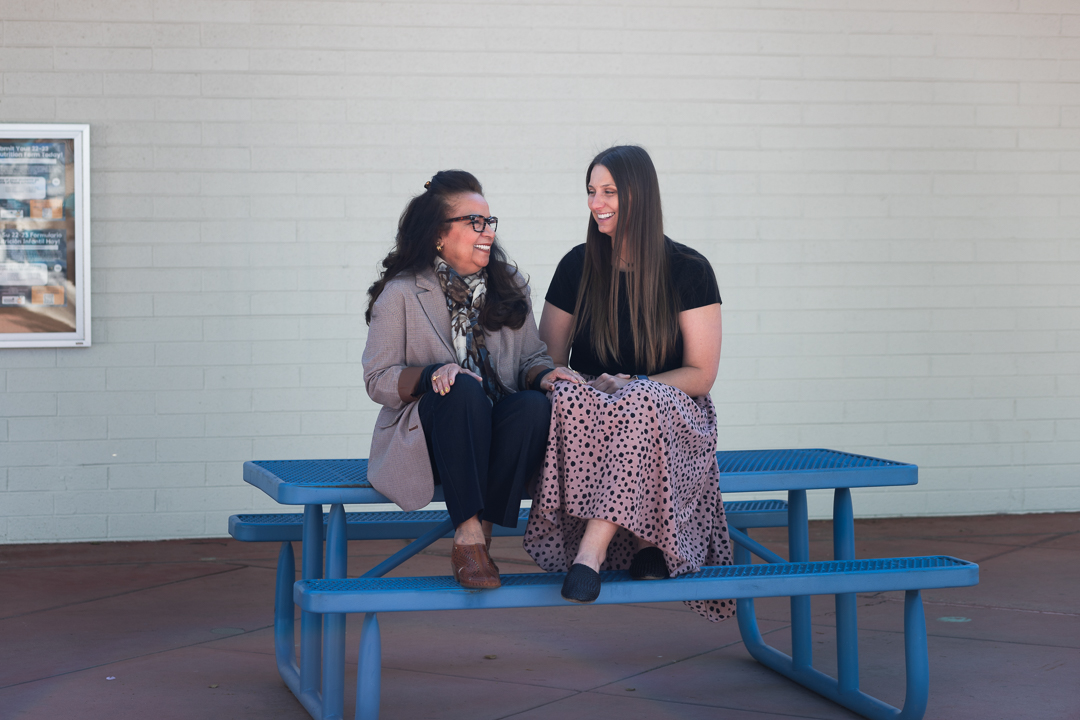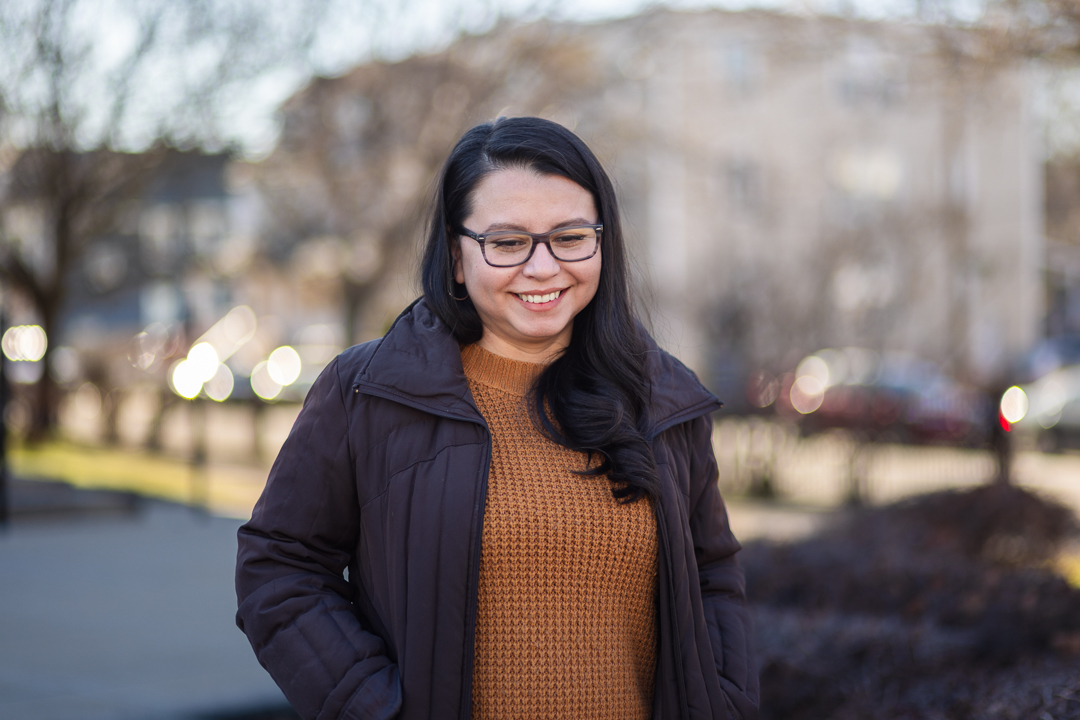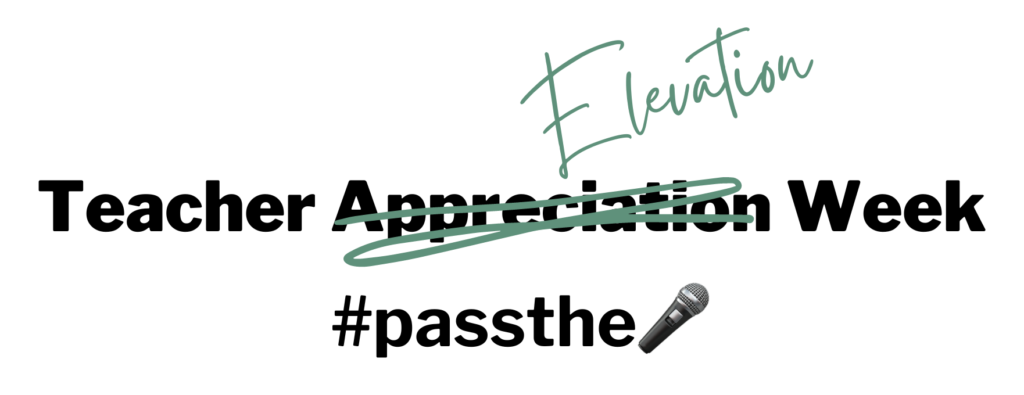
5-Day Campaign Results:
Share a teacher’s story on social media:
Click on any teacher below. You’ll find easy ways to share at the bottom of each post!
-
“The arts enhance every part of education.”
I’ve been told, “this student can’t read” or “they’re a non-reader.” But in my class, in my play, they’ve learned their lines. So I believe strongly: the arts enhance every part of education.
-
“This is my 9 to 5.”
I remember that Monday morning getting an email from our principal. We had lost a student. And I froze. I remember calling to the security guards, “Hey, watch my class.”
-
“We’re not trying to do that anymore.”
I just love that she had that moment of feeling like a kid, and not feeling like she’s carrying anything… And hopefully she remembers that forever, ’cause I will.
-
“When you see a teacher, it’s really a community.”
I’m originally from Atlanta, Georgia. Inner city, poverty-stricken area. My sister and I are first generation in our family to go to college and to get our advanced degrees.
-
Alexandra Mondelus-Duffy | Middle school math and Haitian-American community
I never thought of becoming a teacher. Early on, I wanted to be a pediatrician, but I was more interested in studying mental health and behavior vs. other sciences, so I thought, ‘Psychology would work.’ I thought it was a good middle ground, compared to medicine. I always wanted to know why things are the…
-
Amy Traynor | A school led by teachers
Early on in my career, I was more afraid of talking to parents. But I had a principal who said, ‘If you’re not calling them first with a positive, then when you call them with a negative, it’s going to be harder.’ So I tried to do that. And I have had great success with…
-
Ashley Kannan | “Teaching is about the presence of a soul”
I grew up in Oak Park in the 1980s. People were all about the melting pot. The idea was that everyone is the same and nobody looks different — we’re all part of this collective homogenous blob. One of the drawbacks to that was that I was never really seen.
-
Benjamin Grignon | Teaching within the Menominee Indian Reservation
I was full-on ready to be a full-time artist. And then I was invited to be a teacher at a summer institute in Denver, through the Native American Youth Outreach Program. I think it was seeing those kids connect to our traditional arts — part of our cultural inheritance that they had little exposure to…
-
Brown Deer High School | 3 art teachers share their stories
Three art teachers from Brown Deer High School in Brown Deer, Wisconsin share their perspectives on teaching and learning.
-
BryAnn Sandy | Reflections of a new teacher
I was born in Brooklyn. I grew up from pre-K to seventh grade in the Bronx — but then they started to raise the rent. The buildings were terrible. My mom told us the rent prices and the conditions of living were not adding up, and when they raised the rent again, that was the…
-
Chris Madson | “I think you’re the first teacher that ever recognized me”
I was in high school at the height of the AIDS crisis. And as a 13- and 14-year-old, I would sneak away into the city to meet up with this group of people, mostly gay men and Black women, who were part of ACT UP — a group who did intense activism around access to…
-
Diana Callope | “Everything is different about middle school”
I have one student who really sticks out in my mind. I had him in my class when I taught seventh grade, and then he was in my class again when I switched to eighth grade. So I got to have him in my math class two years in a row. And he would do…
-
Dillin Randolph | Advocating for students of color
When I was a teenager, I had summer jobs as a custodian. It paid pretty well. So when I got to college, even though I was working as an office assistant in the pharmacy department, I decided to look for more hours cleaning schools. I figured I could do that until I got my degree…
-
Ebony Manion | The many jobs of teaching
When I was in first grade or second grade, they pulled me out of the classroom to teach other students how to read. I guess I was a really good reader. I don’t remember why they asked me, but they were really curious how I knew how to read so well. My siblings and I…
-
Francis Pina | Math, life skills, and Black male role models
I wanted to work at the Boston Federal Reserve and go to the London School of Economics. But I graduated in 2009, and there were no jobs available, due to the housing crisis and Great Recession. So I started working at a local public charter school.
-
Hispanic Heritage Month: Educators Share Their Thoughts
Educators share their thoughts on Hispanic Heritage Month. This year’s theme is Building Prosperous and Healthy Communities, and we’re here to elevate and support a strong community of educators.
-
Hot chocolate and parents as partners
In that moment, just sitting there enjoying that with them, I noticed that I was not doing those things as much in my last couple years of teaching. Because I was so exhausted. And those special moments that made me have this great connection with my students, those special moments that made me love my…
-
Jenna Hewitt King | “I wanted to work in the place that transformed me”
I went to high school here in San Leandro, at the school where I teach. We have three ‘academy programs,’ where students can apply to go through 10th through 12th grade in cohorts focused on multimedia, business and finance, or social justice. I was in the cohort called Social Justice Academy, so I took my…
-
Kareem Neal | Why I teach special education
I became a teacher by luck. I was a chemical engineering major at Seton Hall University in New Jersey, where I grew up. There was a Special Olympics event, and I was setting up for it because I worked with a gym. One of the coaches said, ‘Hey, would you mind coming over and saying…
-
Khalid Birdsong | “You can leave education and come back into it”
At first, I didn’t want to be a teacher. I come from teachers. My mother’s a teacher, my grandmother was a teacher — on my mother’s side, there are teachers all the way back to slavery. I grew up in a classroom, helping my mother set up for first grade at the beginning of the…
-
Kritika Srinivasan | Behavior and bearded dragons
My mom came to the U.S. from India. She got a scholarship to do her PhD in French at UCLA, and then she adopted me from India when I was six months old. It was a huge family occasion — they all banded together to help me to come to the U.S. I made it…
-
Lance Powell | The paradox of teaching
I always thought I wanted to go into law. I saw all these courtroom drama TV shows growing up, and that’s what I wanted to do. I went to the University of Wisconsin–Madison with the intention of eventually going into environmental law, but I had a change of heart along the way. I really didn’t…
-
Lauren Wesnak Smith | Personalized and extended learning
I remember being in a conversation with my mom in high school — I don’t know if we were driving somewhere, or just talking in the kitchen. But I remember her telling me that I was ‘a real people person’ and that that was a gift of mine. She told me I could strike up…
-
Lupe Ramirez | “I am, beyond words, grateful to be a teacher right now”
It’s hard to view my career in stories. Maybe it’s not even my story. Maybe it’s the story of my dad. I grew up in South Chicago. My dad was a preschool teacher. And everywhere we went, it was like, ‘El maestro, el maestro!’ And so that made me a celebrity by extension: la hija…
You can also browse stories by topic:
ADHD AI arts assessments and grading practices a teacher I had as a child athletics career and technical education career readiness child hunger community involvement competency-based education confronting racism critical thinking decision fatigue dyslexia early childhood education policy elementary school English language learners equity faith family engagement financial literacy foster care freedom of speech in schools gun violence hierarchy of needs high school history and social studies homelessness and housing insecurity how administration supported me how we can recruit more teachers immigration importance of social workers incarceration independent school indigenous education I was adopted joy language arts lawyer letters to students LGBTQ+ students love and logic math media literacy mental health middle school Montessori music my hope for new educators navigating sensitive topics never thought I would teach outdoor learning play-based learning portrait-based story privilege professional learning project-based learning public education public perception of teaching purchasing my own supplies restorative practices rural school counseling school safety science secondary trauma social-emotional learning soul special education STEM student-staff ratio student ownership of learning student transformation story suburban surveys teacher-led school teacher autonomy teacher burnout teacher community teacher mentorship teacher pay teacher retention teaching runs in family teaching team the beauty of teaching therapy dogs urban video interview we created a school what keeps me in teaching what standardized tests do not measure why I became a teacher
About this initiative:
#passthe🎤 is a Teachers in Their Power campaign in honor of Teacher Appreciation Week.
Passing the mic is one of the best ways to support teachers and their students. Educators have a deep understanding of what’s happening in our schools, but they don’t always have the chance to be heard. By intentionally elevating the voices of teachers, we create spaces where teachers can share their experiences as professionals and as advocates for children.
Passing the mic can also help address inequities that exist in our education system. Teachers from all different backgrounds offer valuable perspectives. By amplifying their voices, we draw attention to the unique challenges of communities across the country — as well as possible solutions.
Did you know?
- Teachers and principals have 2x the stress rates of the general working adult population. (RAND 2022)
- Over half of American teachers plan to leave education earlier than they had planned. (NEA 2022)
- Although 94% of teachers believe they can make a difference in this world, only 60% feel confident voicing their opinions and concerns. Only 54% feel they have a voice in decision making at school. (Quaglia survey of 30,000 teachers)
You can learn more about Teachers in Their Power by reading the About page or browsing the FAQ.
As always, you can nominate a teacher or volunteer here.
